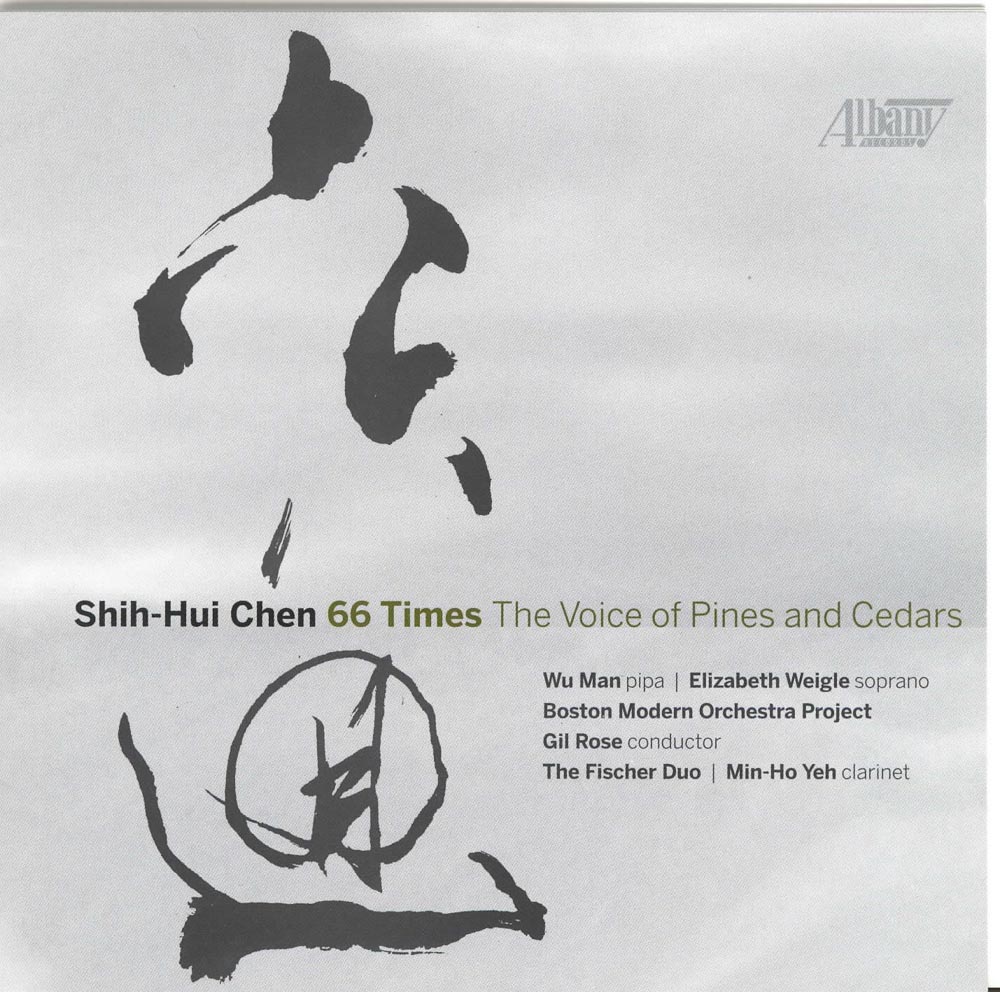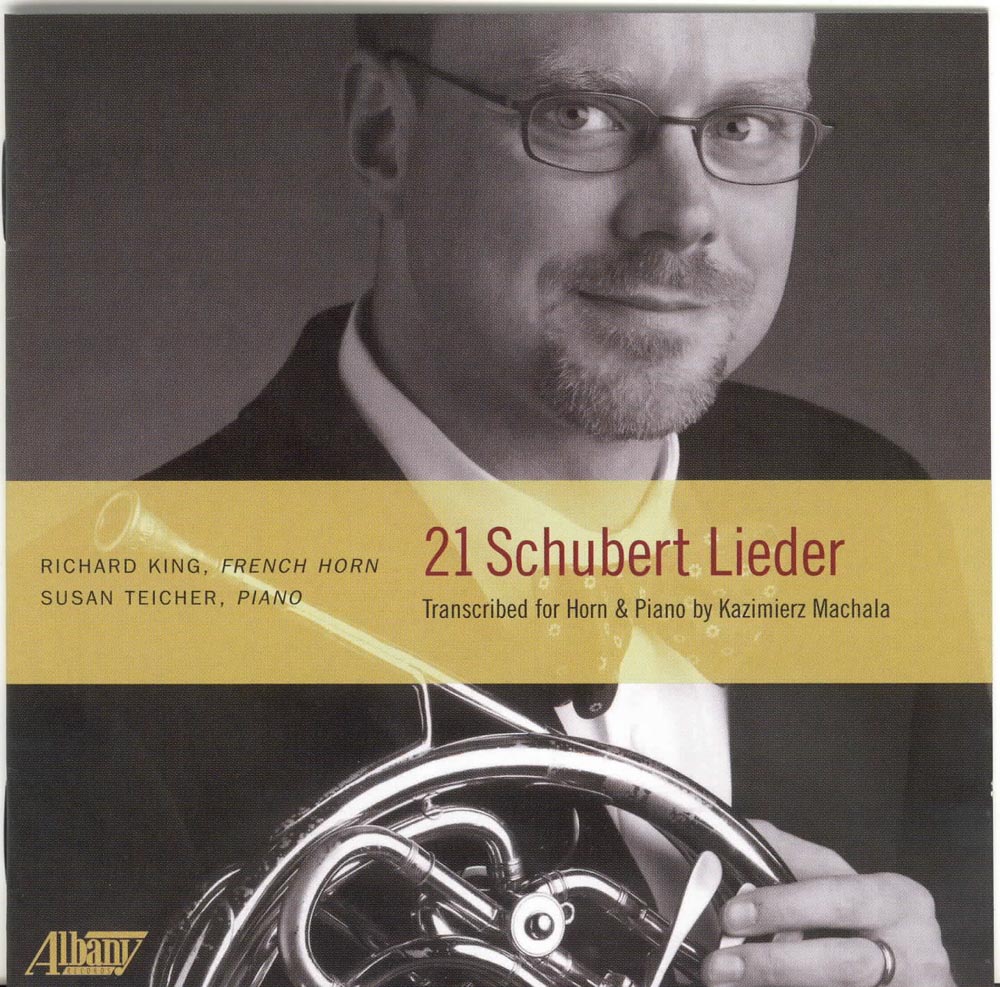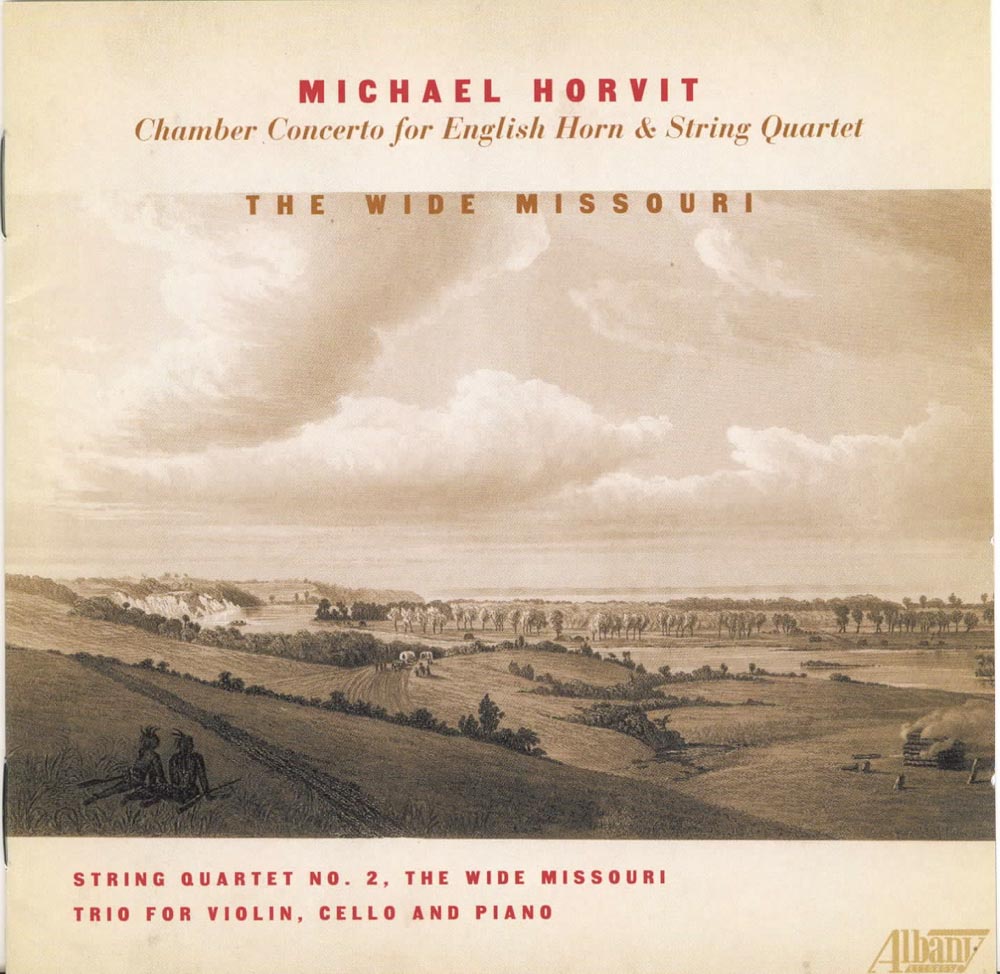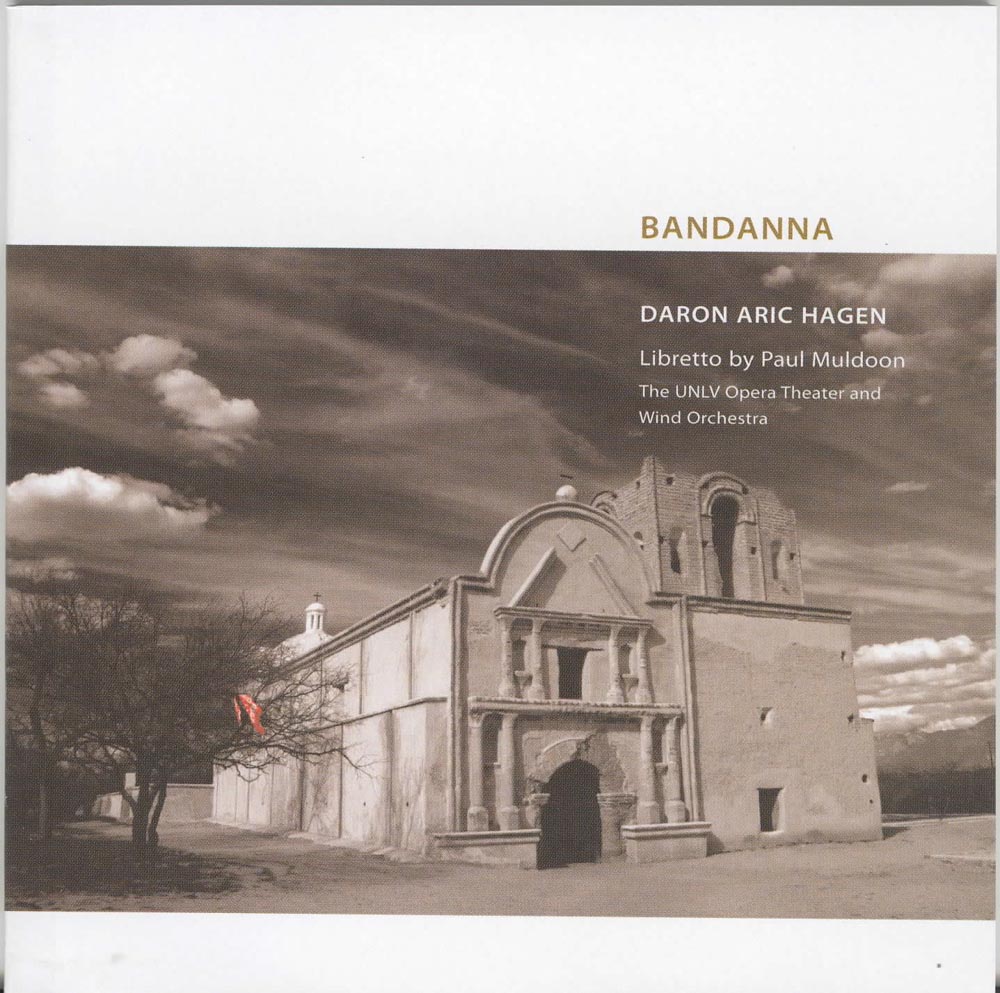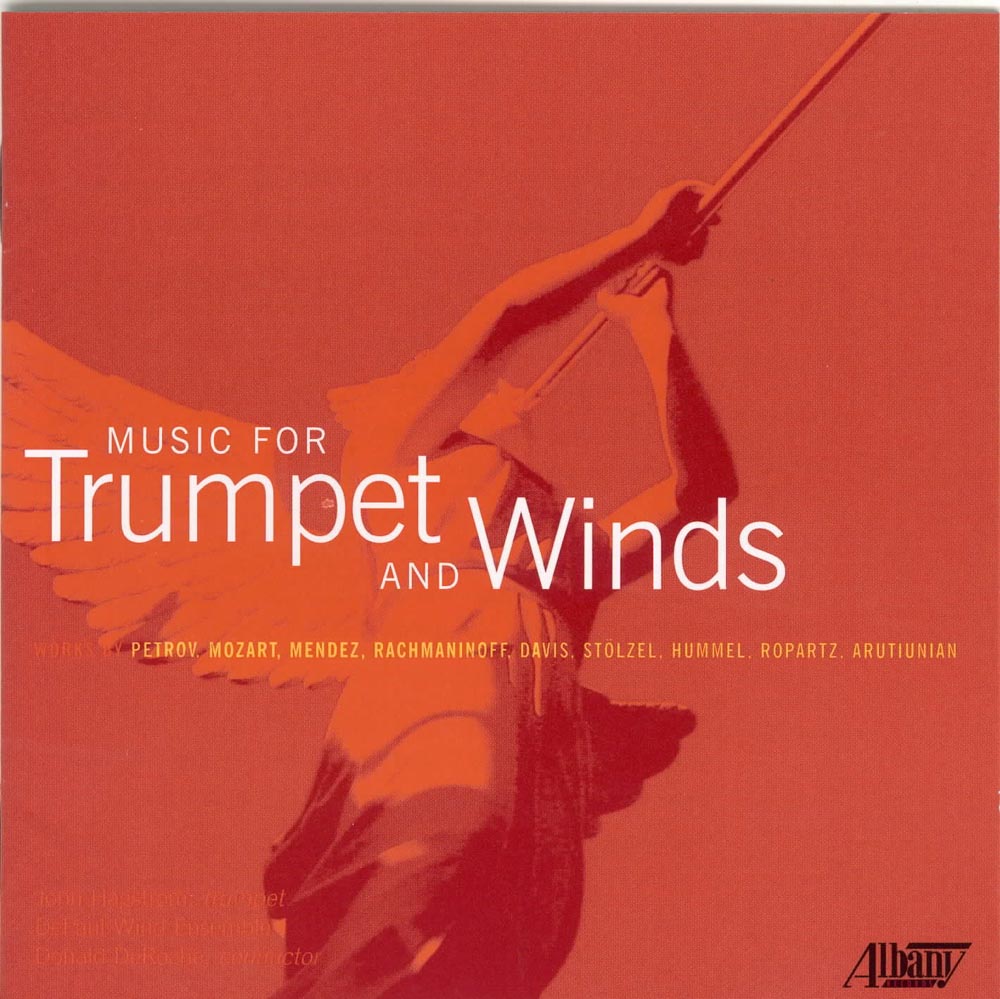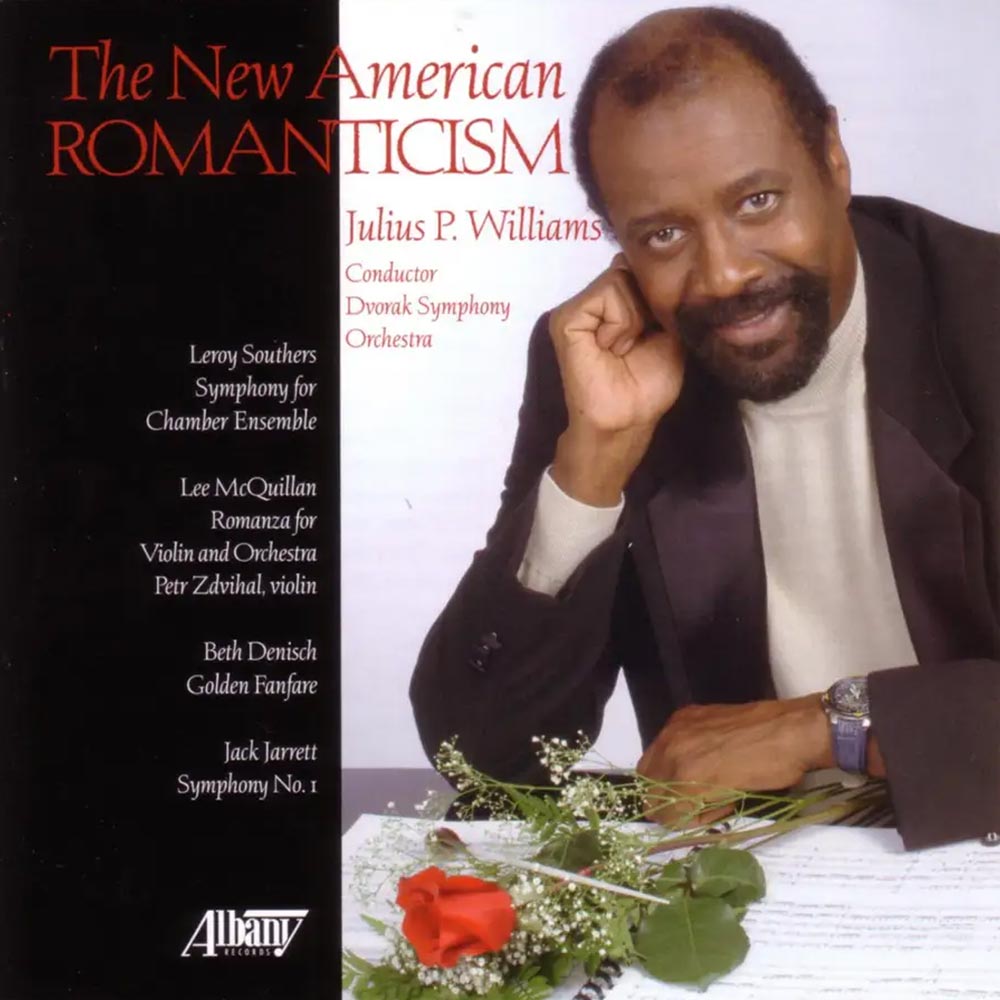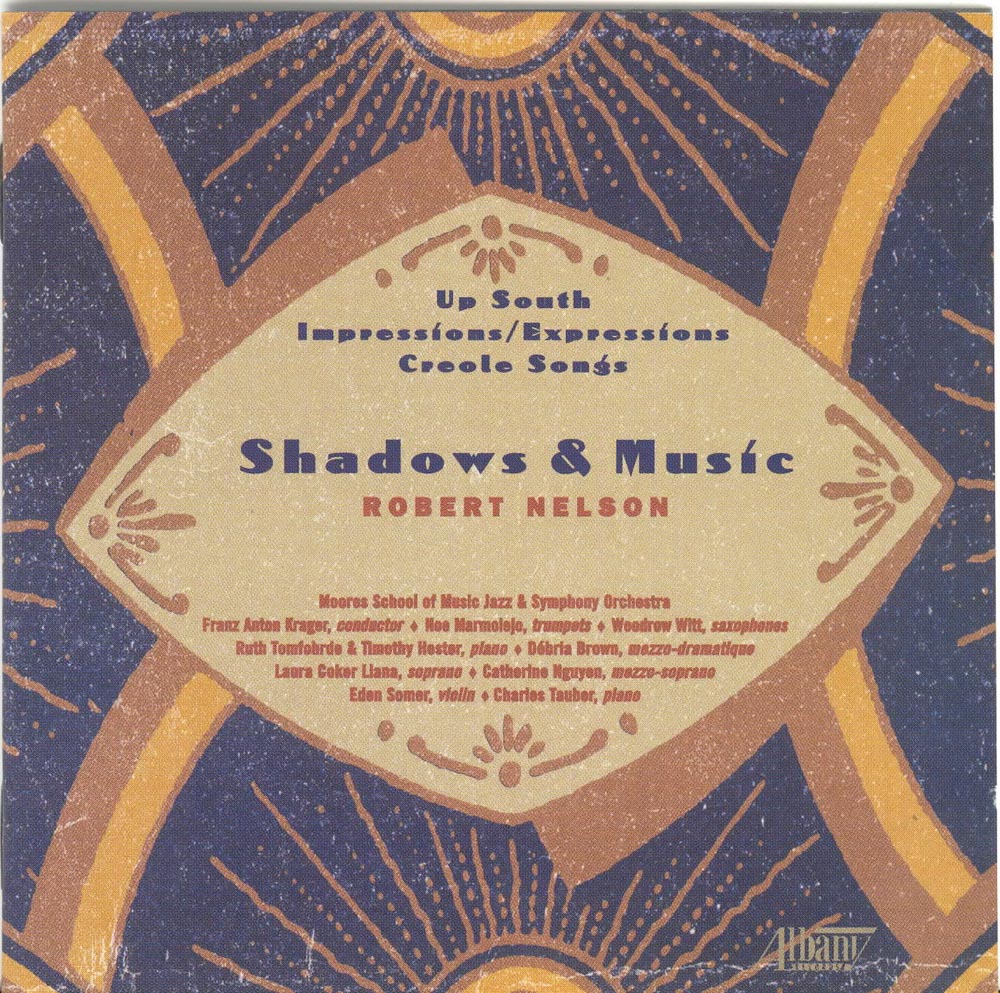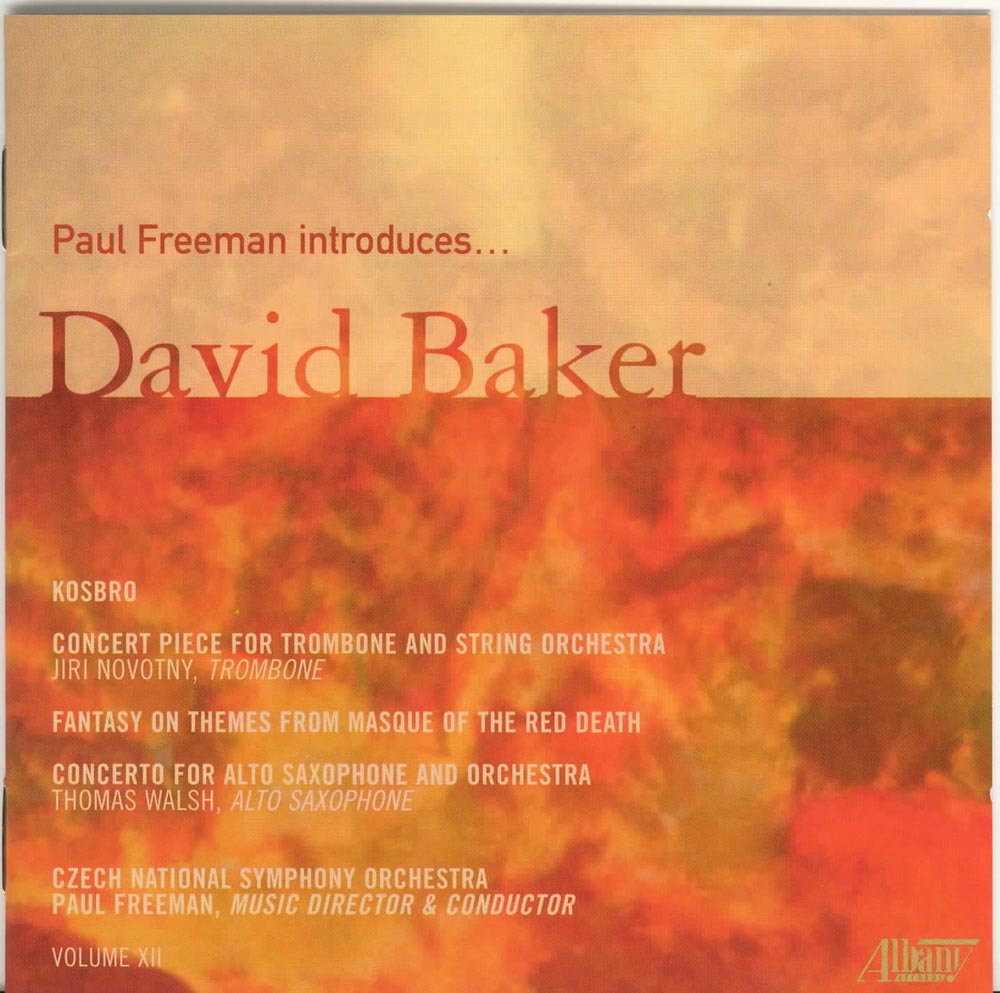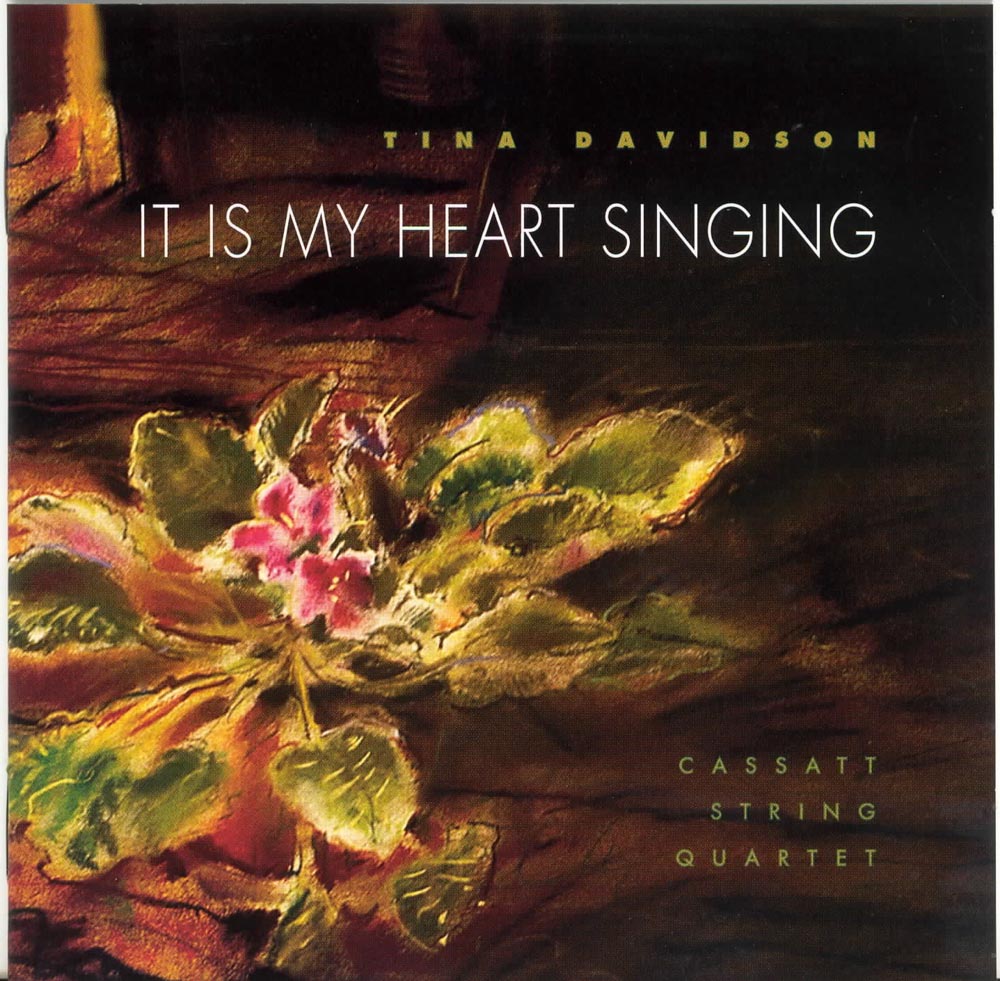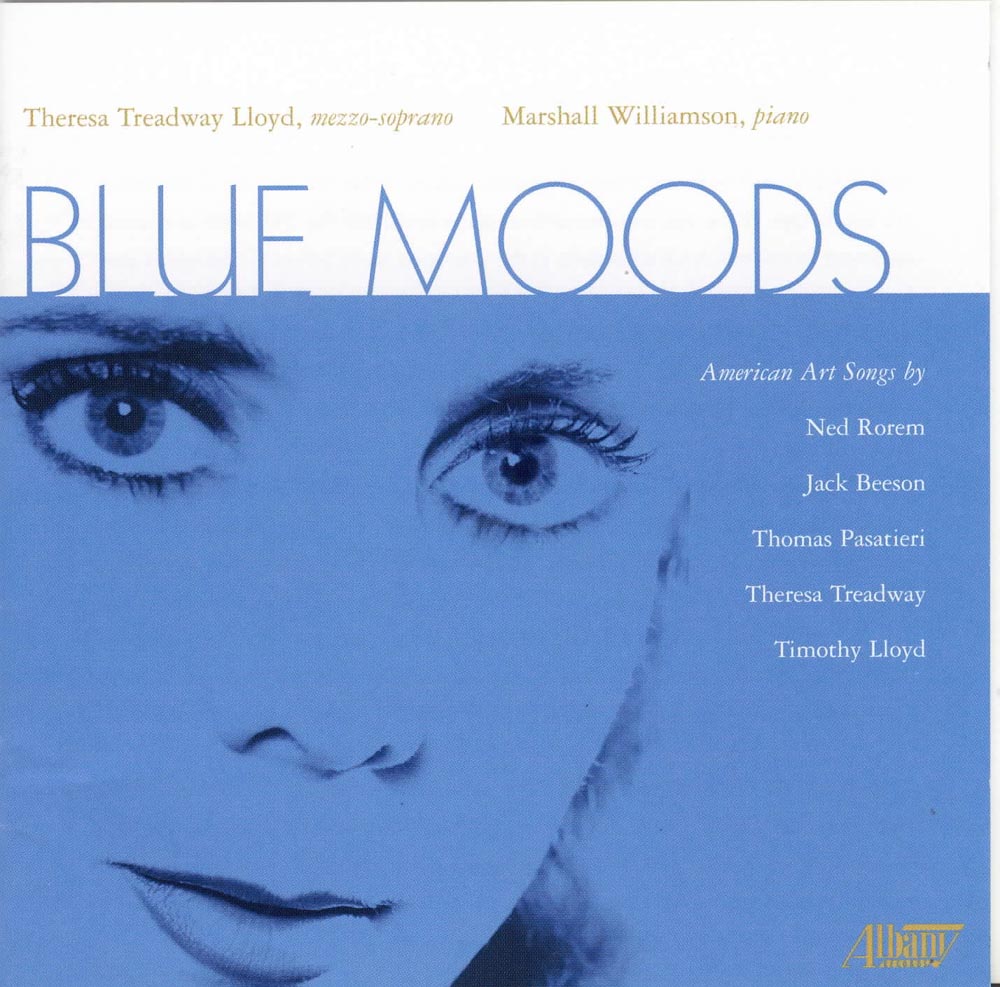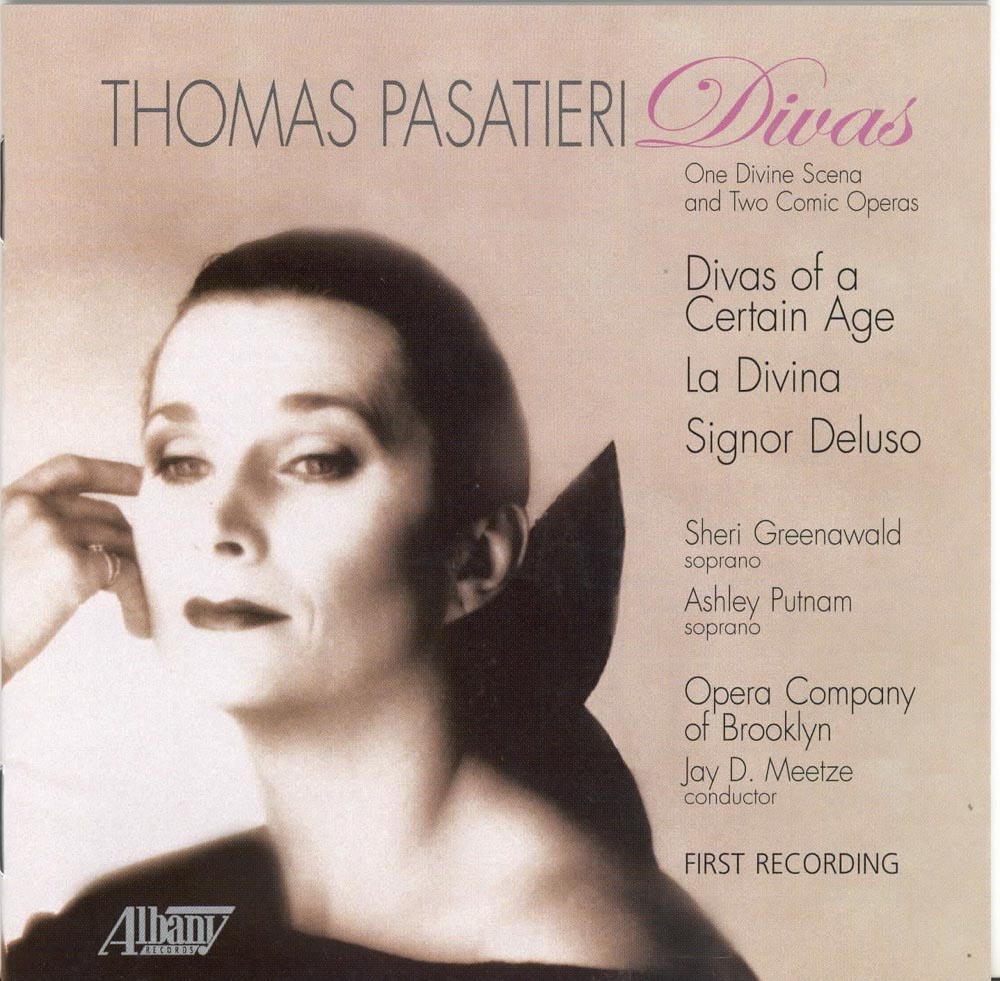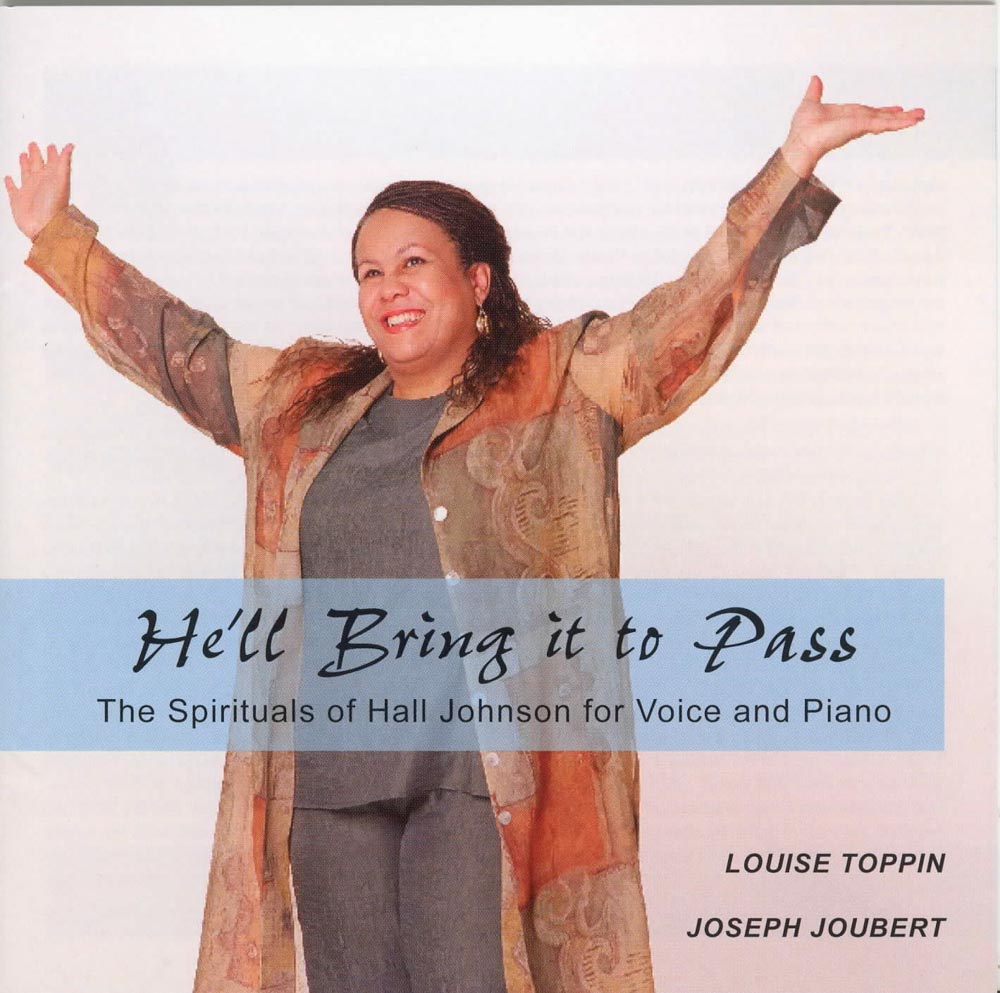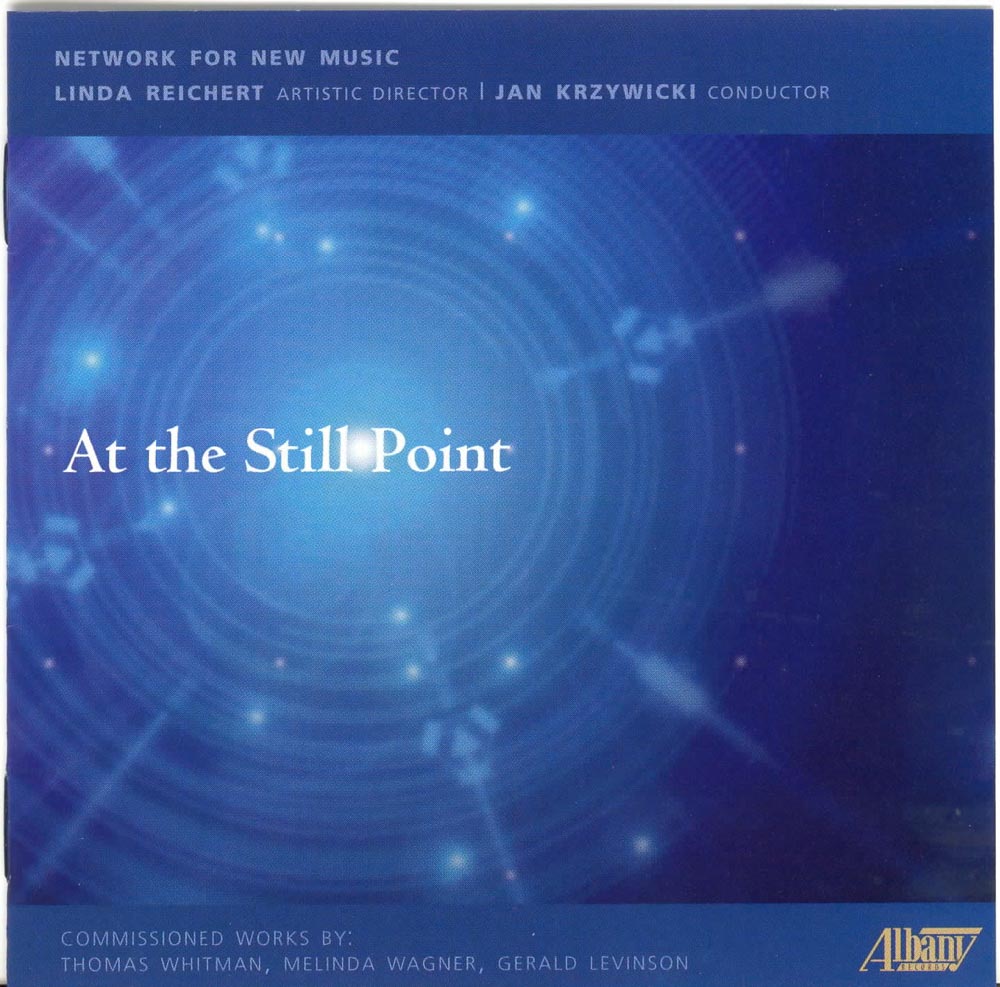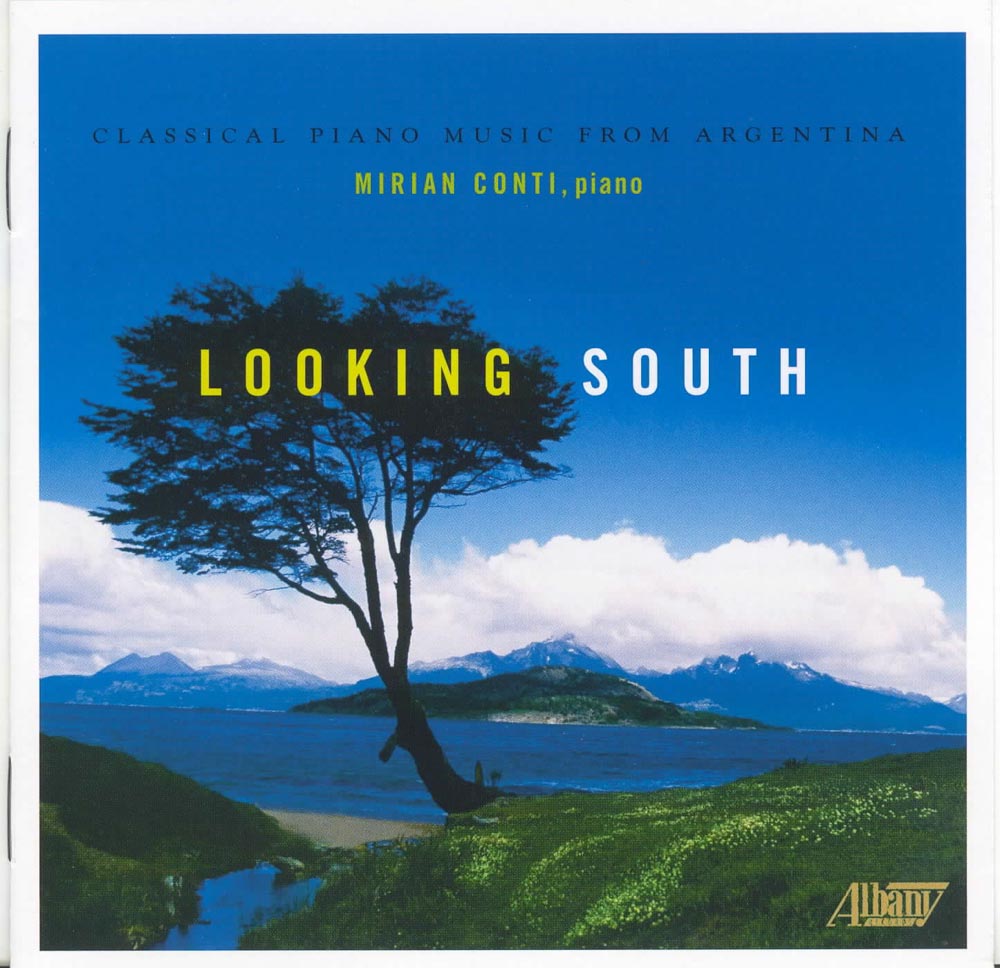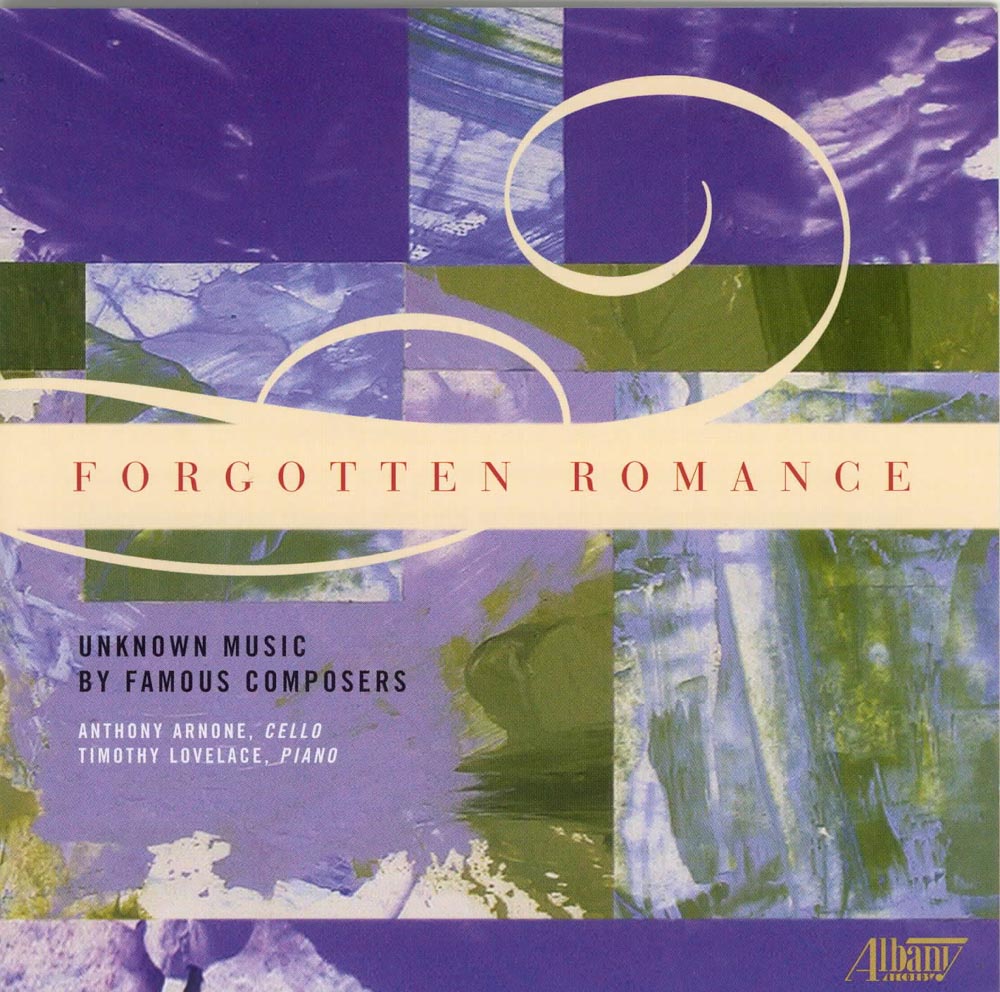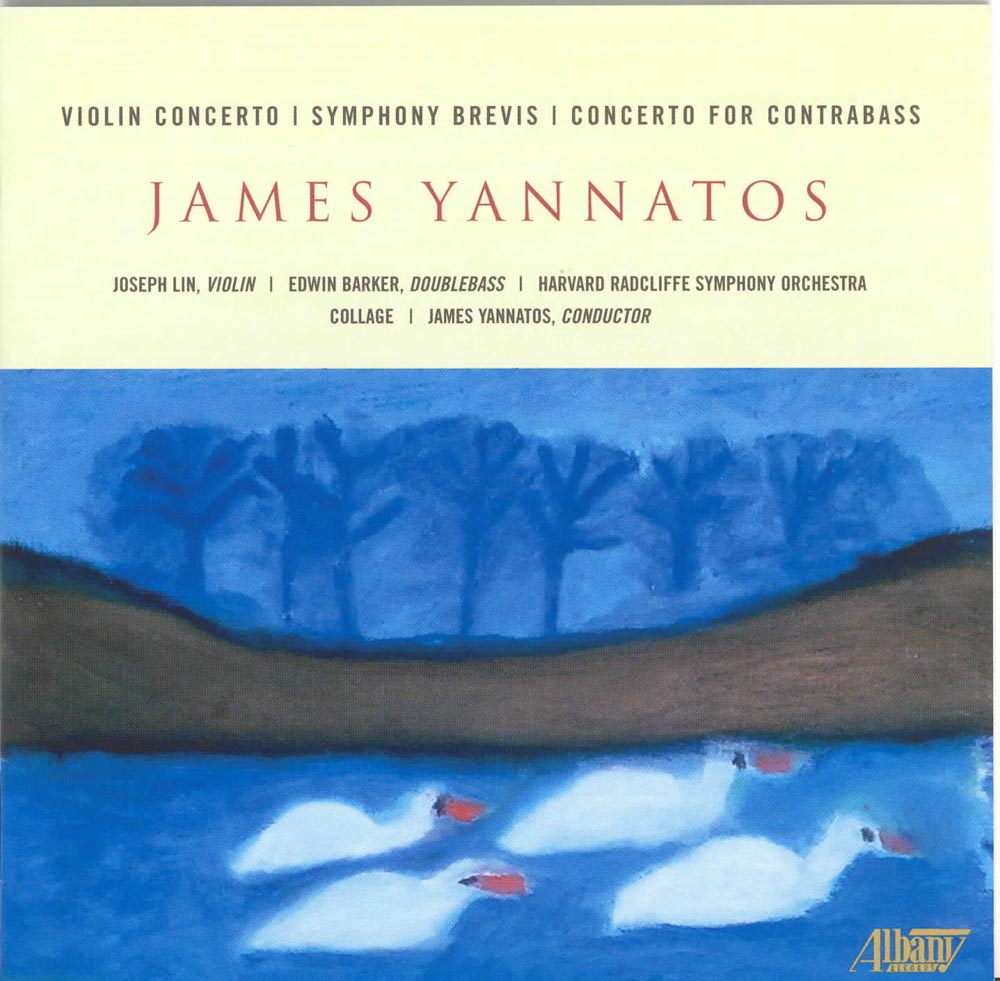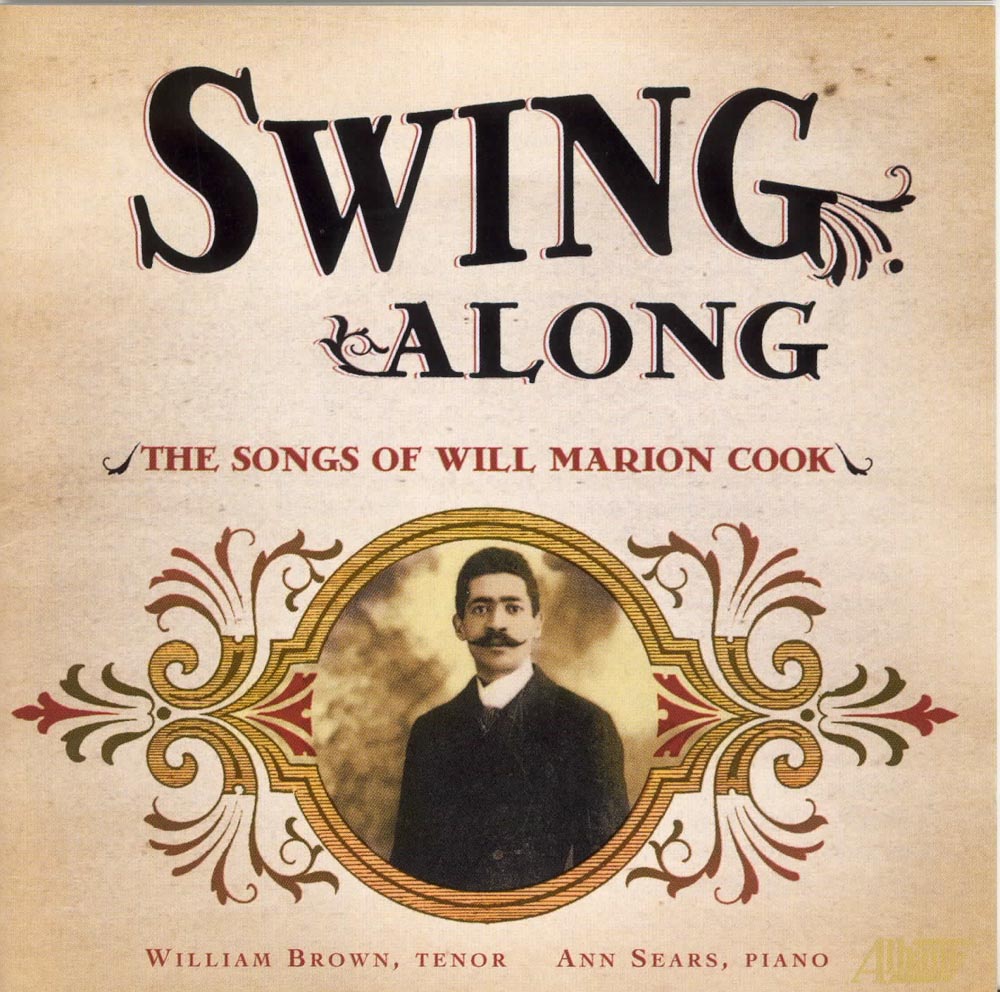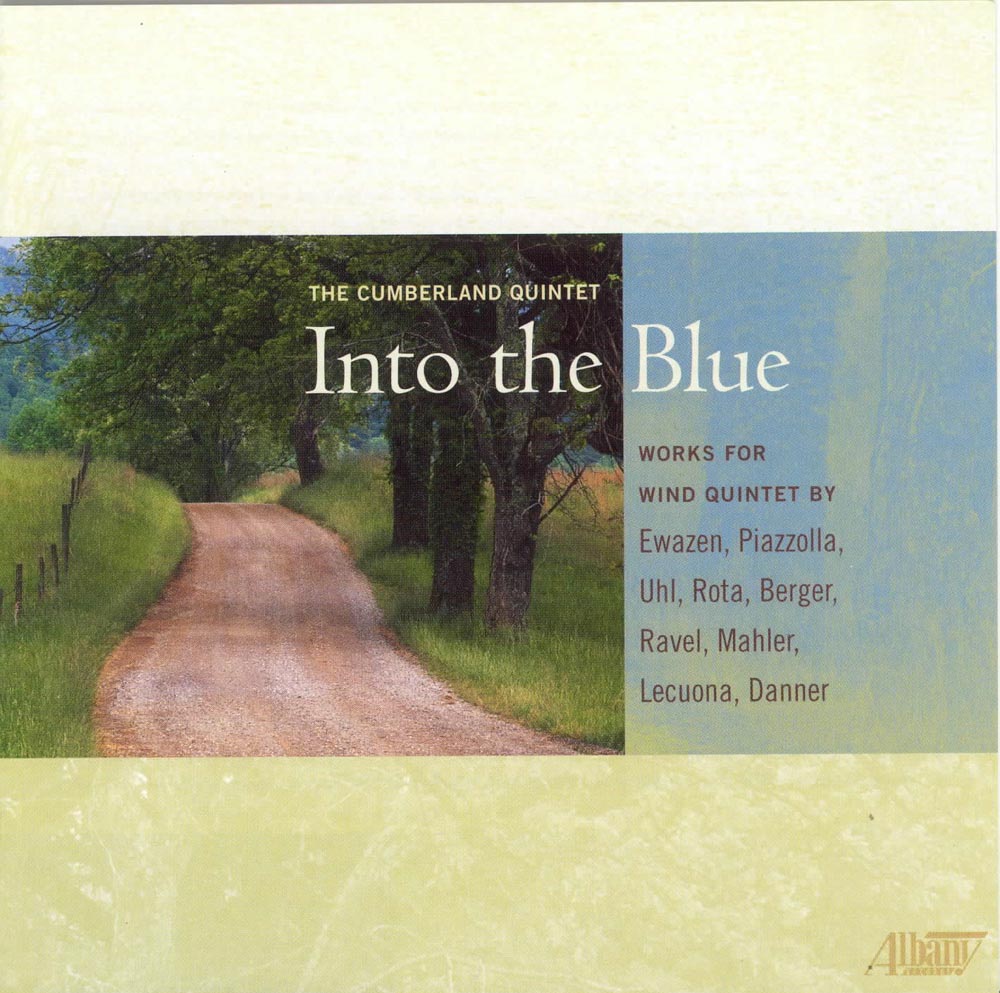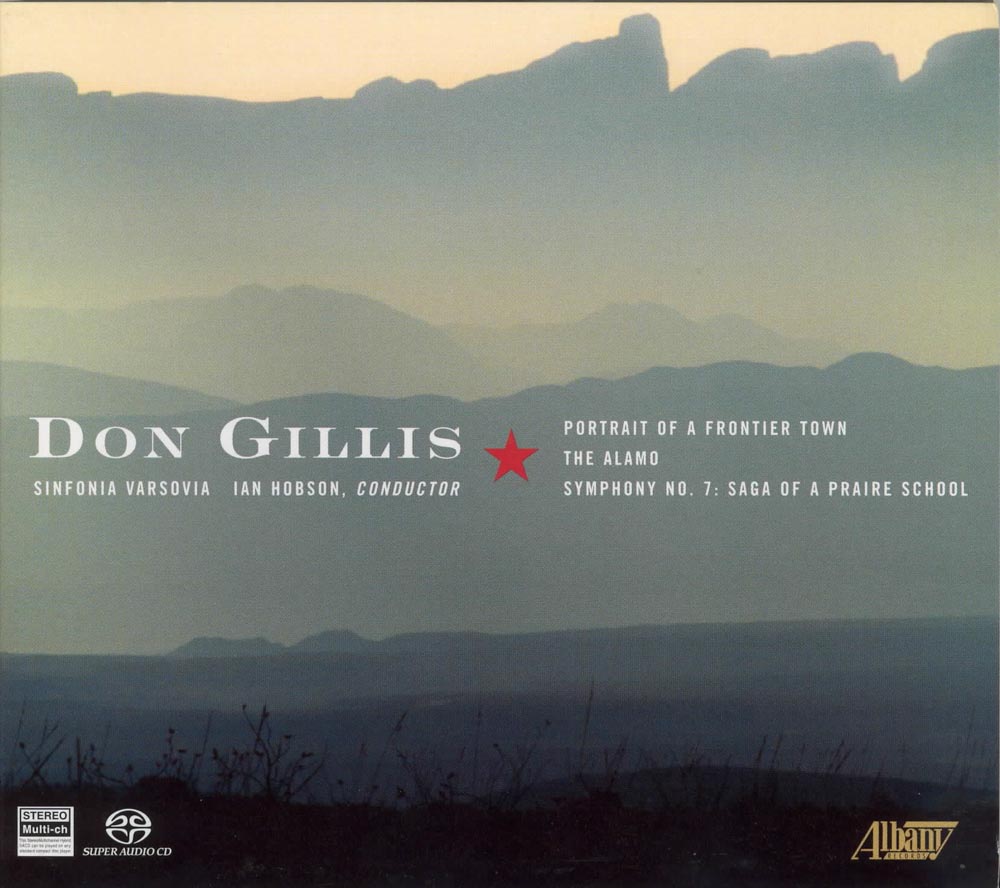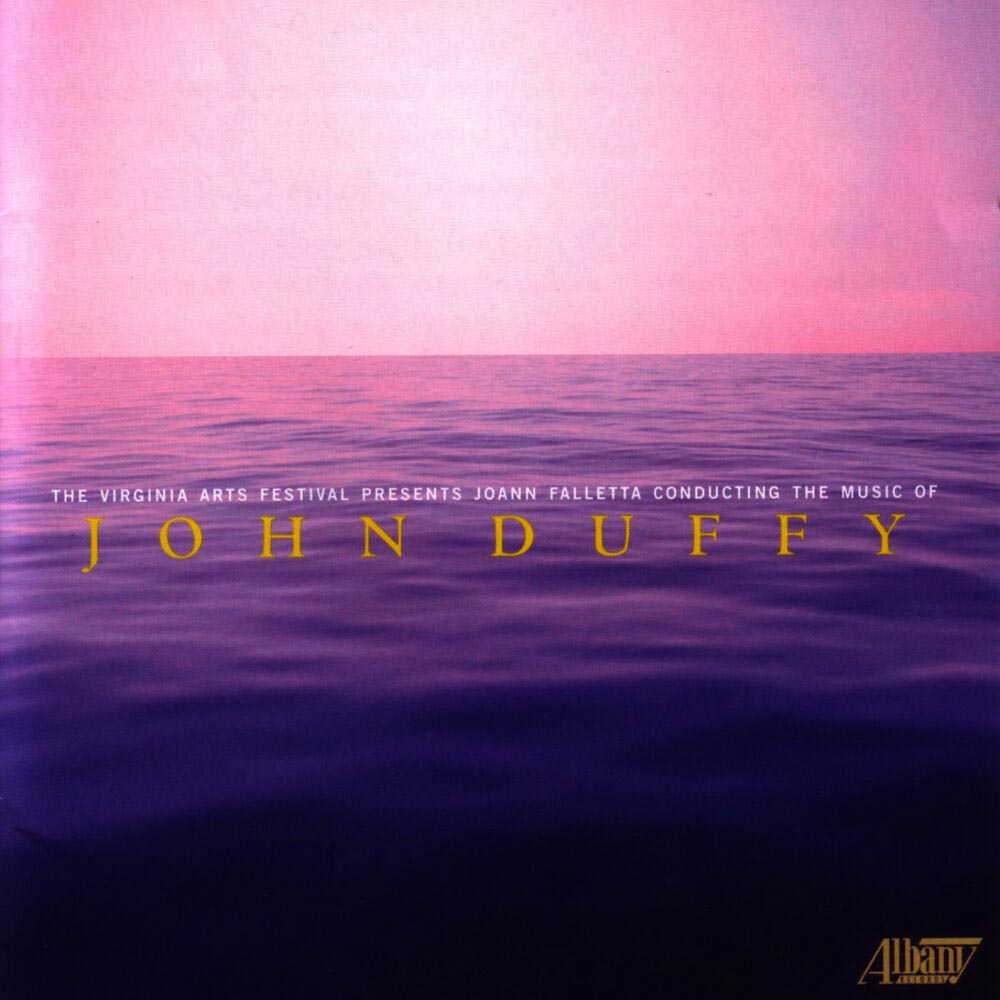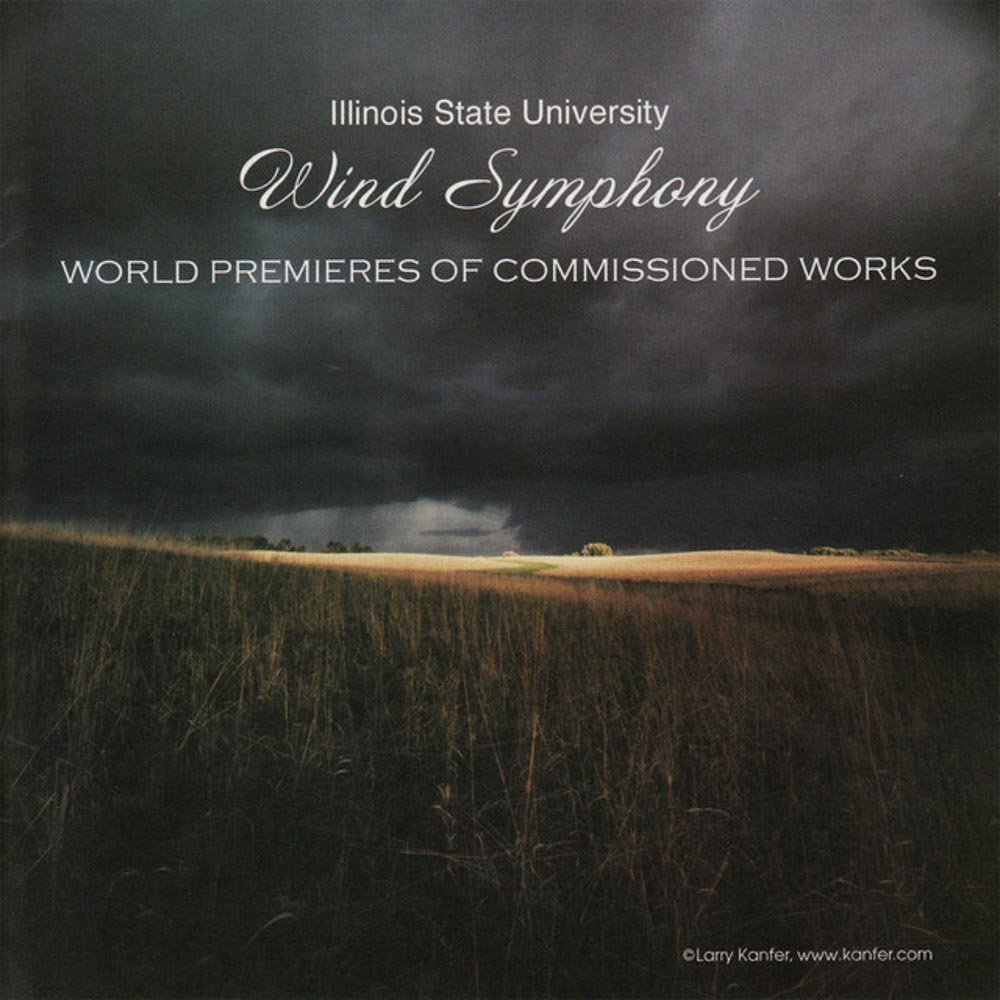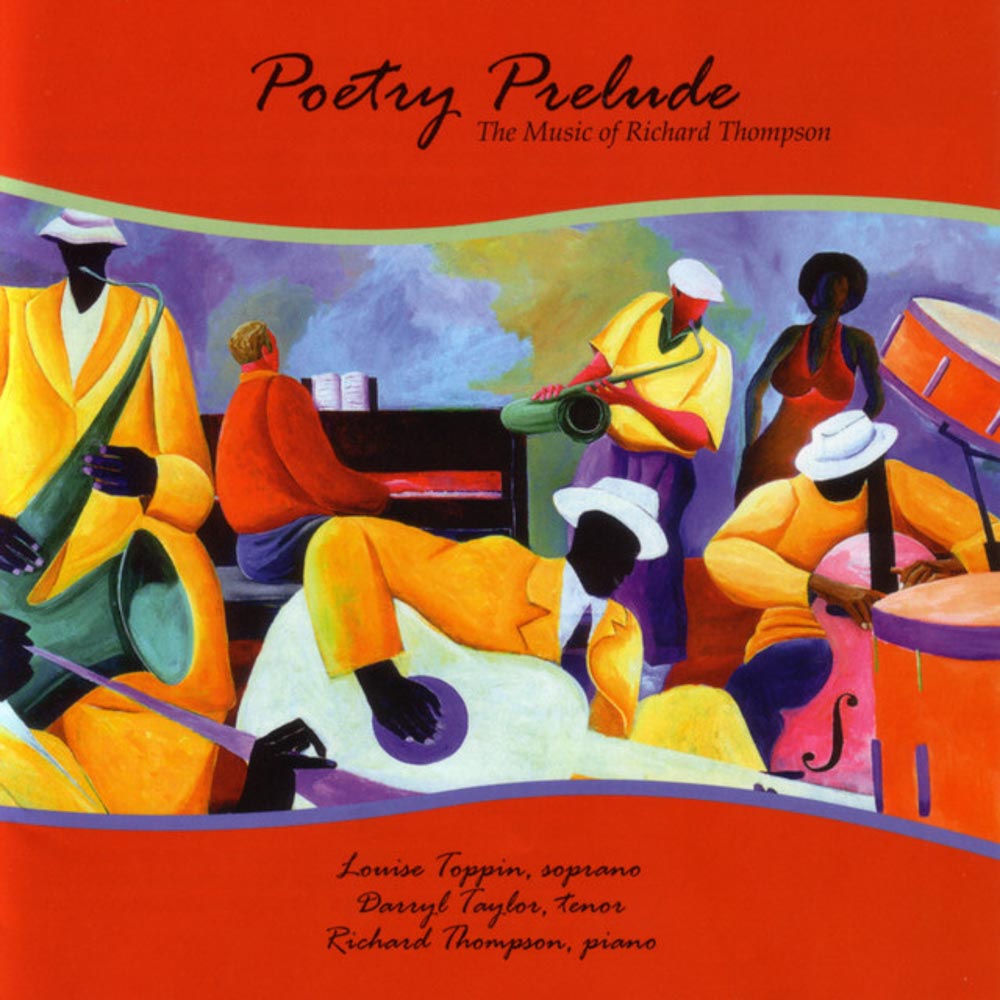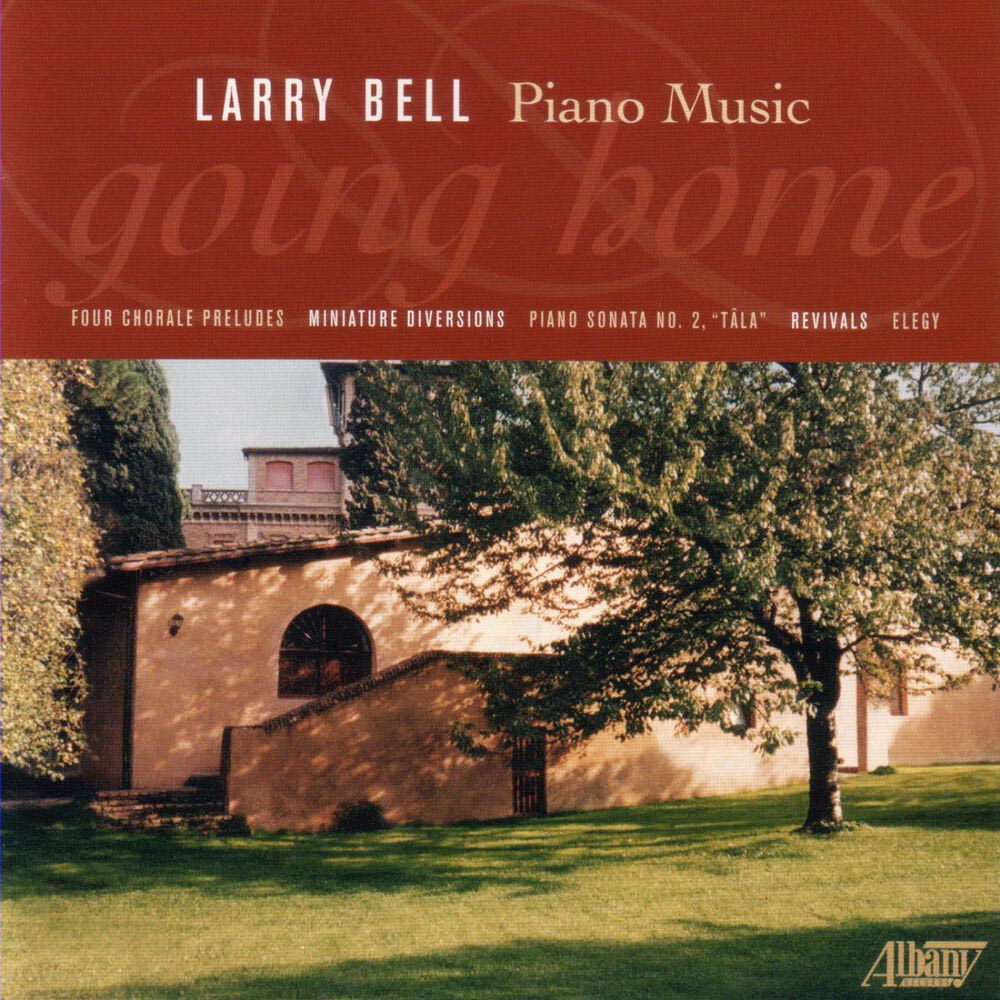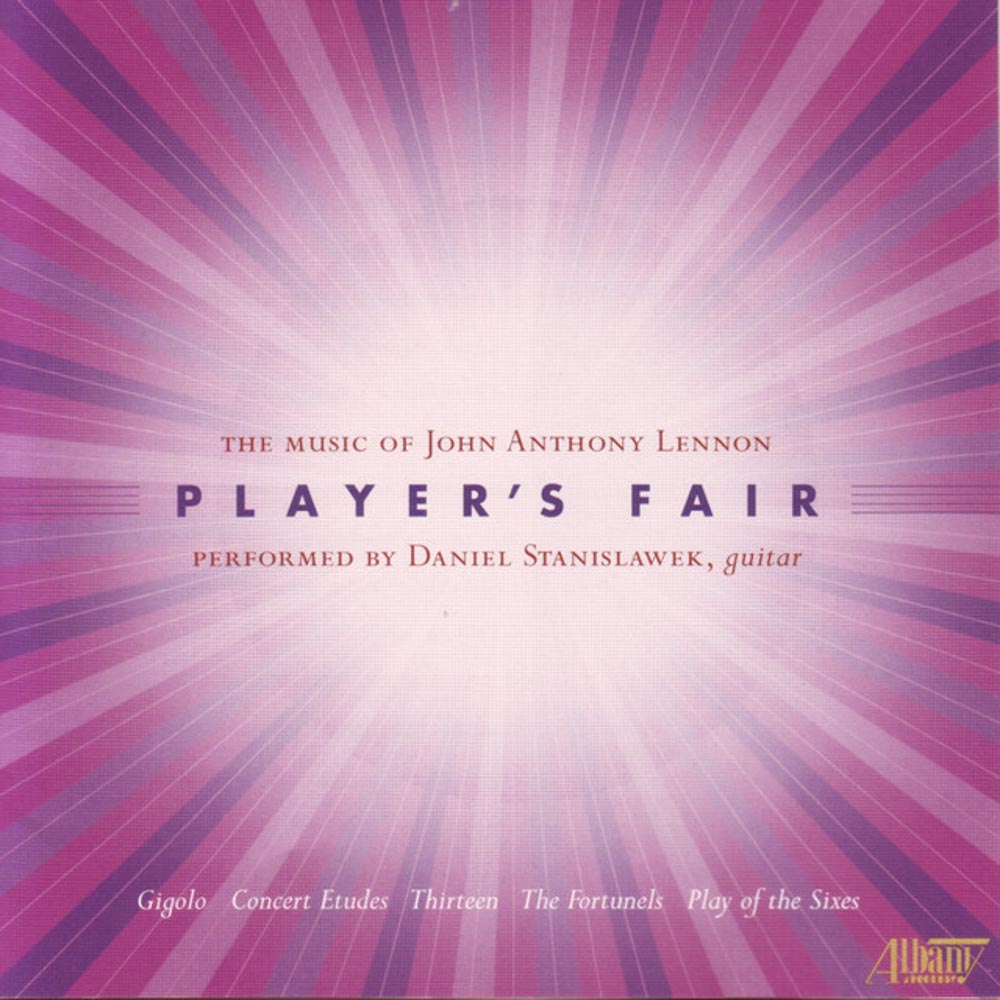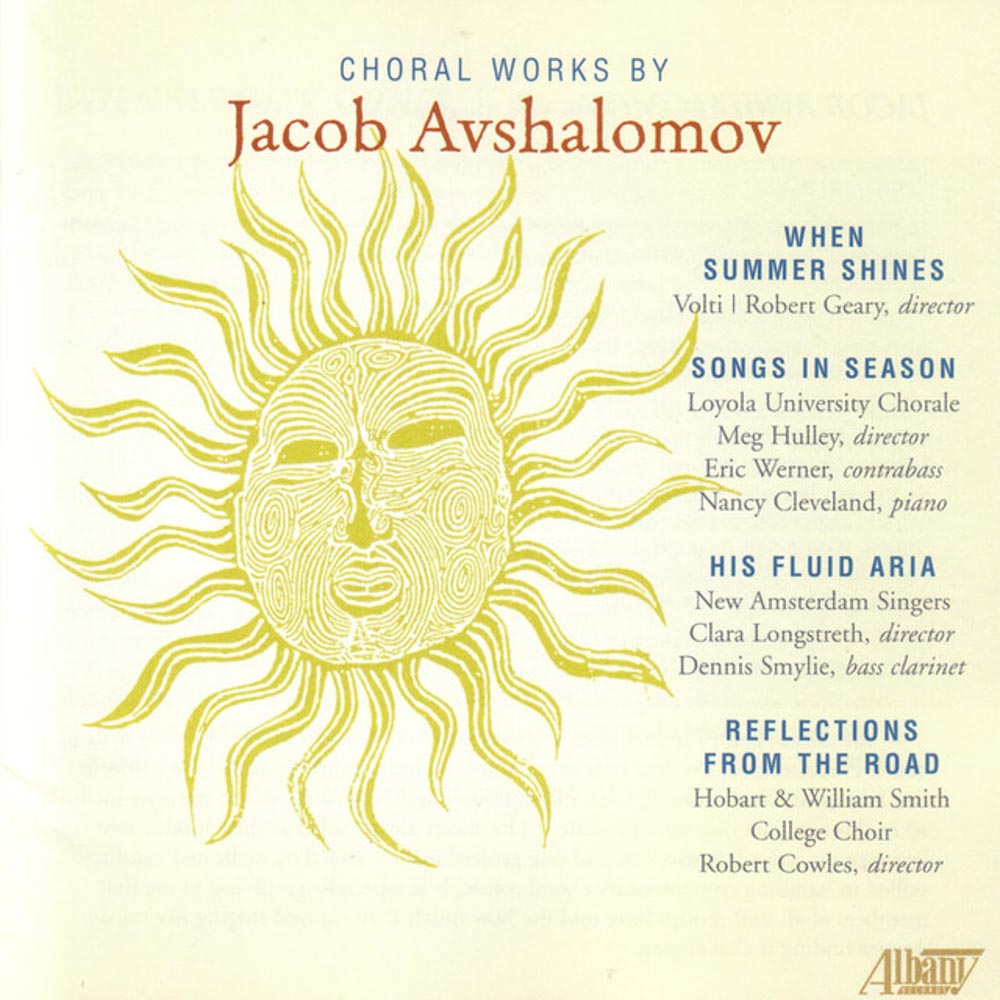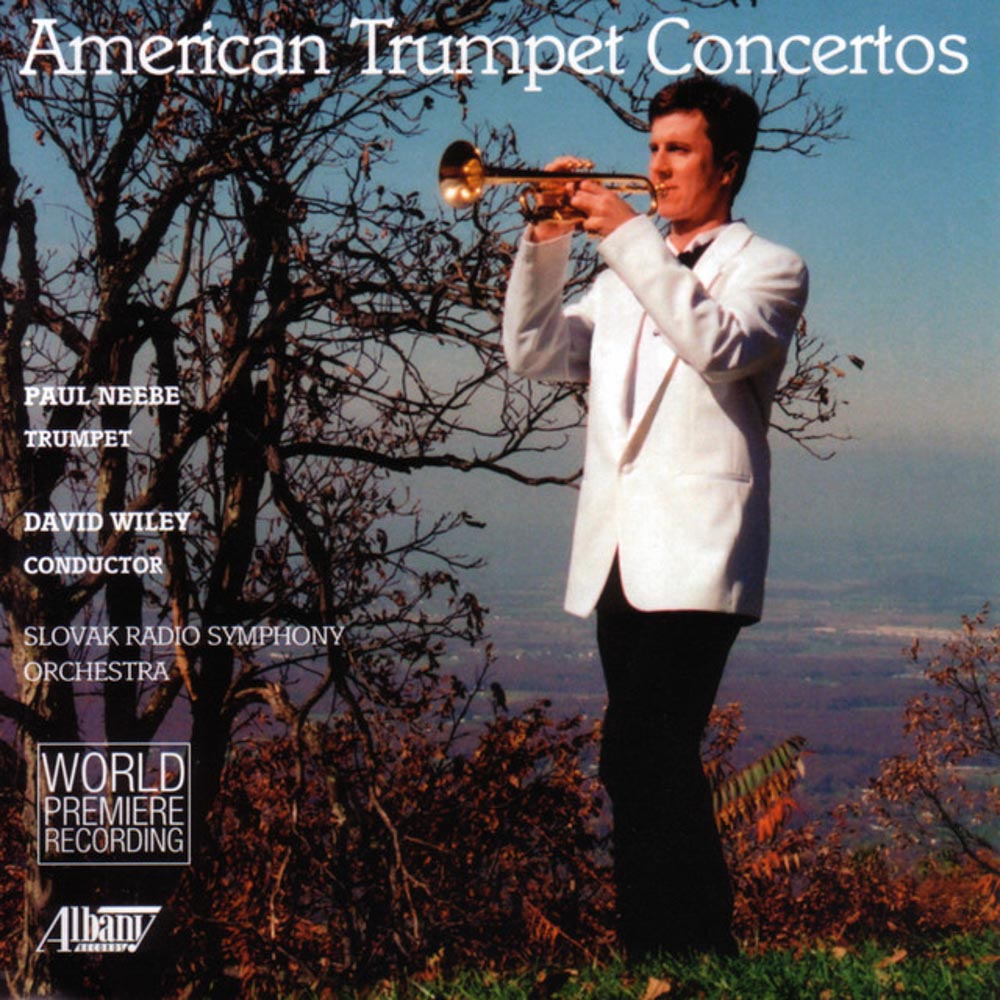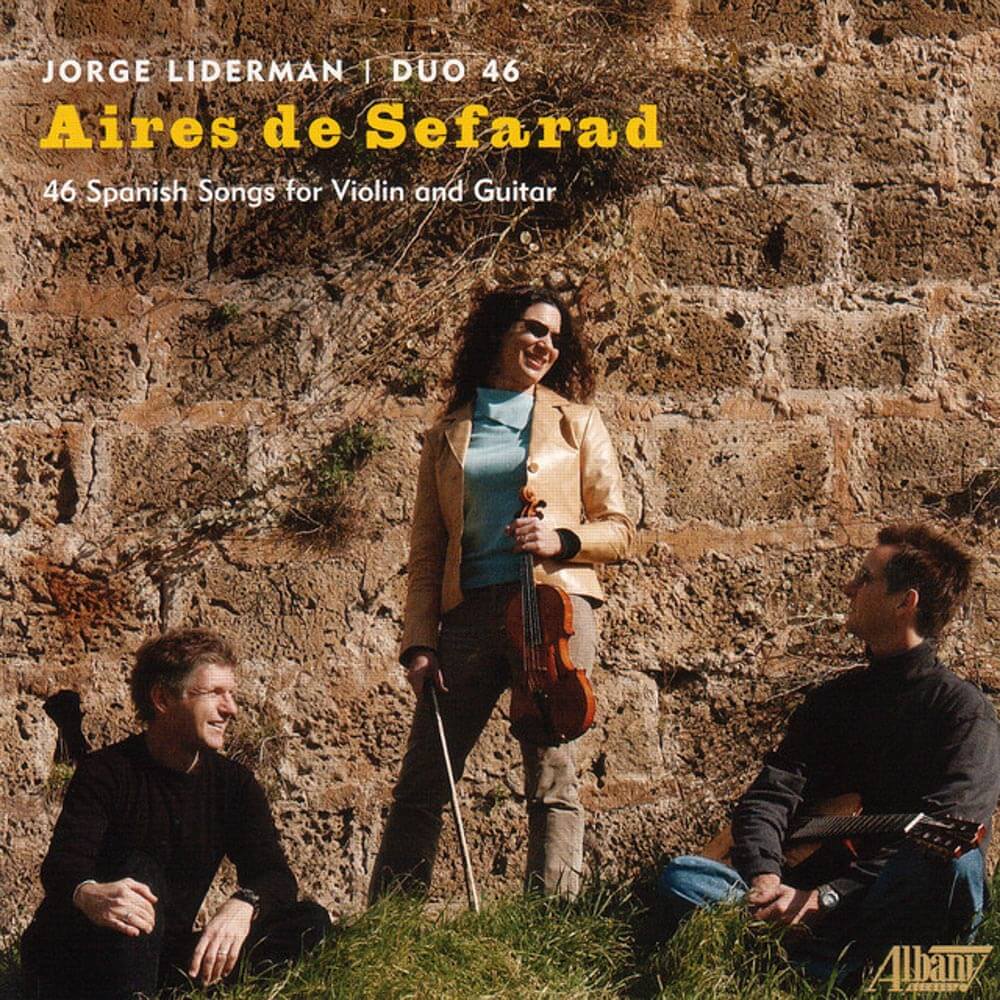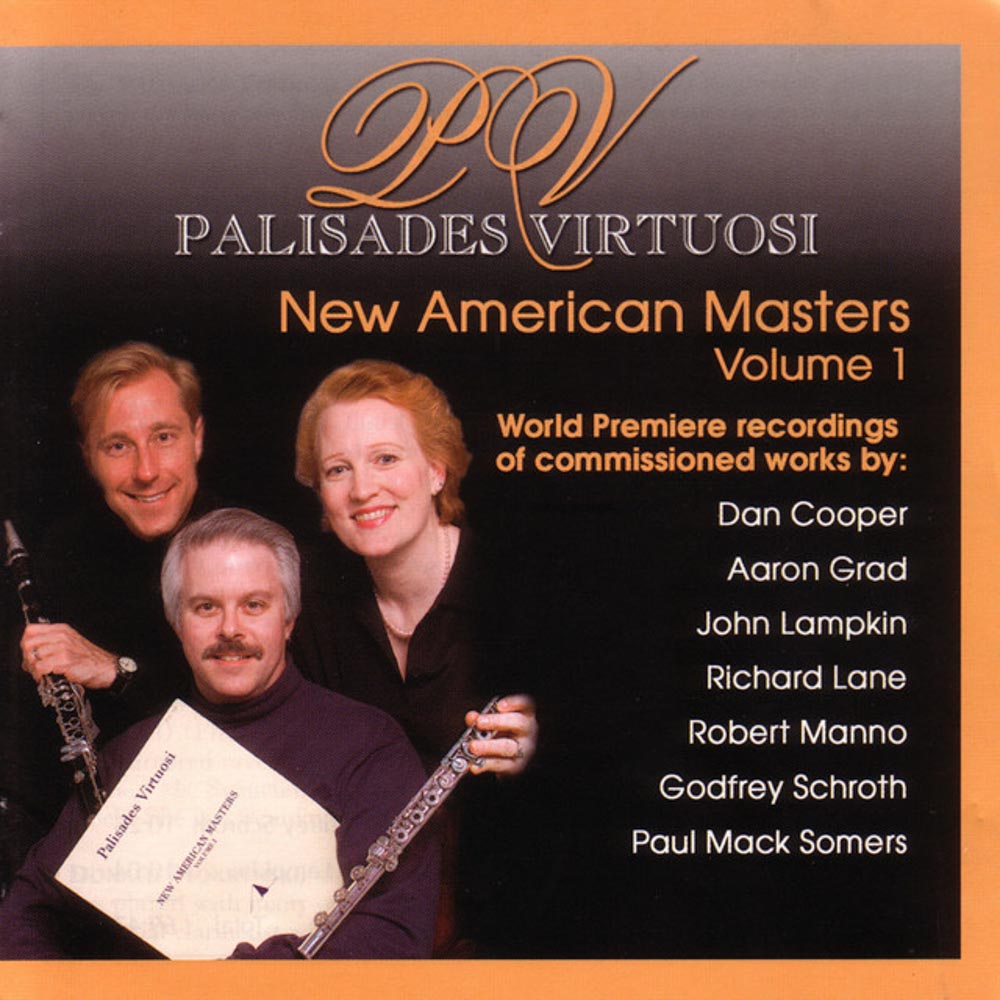Catalog #: TROY0858
Release Date: July 1, 2006OrchestralThe art-music composer of today faces many challenges. On the one hand, one is tempted to create music that embraces a diversity of styles. On the other hand, one hopes to develop a personal language that would reflect one's artistic orientation and at the same time communicate effectively with the audience. This issue is of particular relevance to composers who grew up in non-Western cultures. Their music, to some extent, manifests their struggle to mediate between Western music and music of their own culture. Shih-Hui Chen is one example. Having grown up in Taiwan and having her basic musical training there, her works have been influenced by traditional Chinese as well as Western concert music. Over the years Chen has become adept in the compositional language of Western music. She earned a doctoral degree from Boston University while continuing her education in the United States. A prolific composer, she has written for a wide range of genres, including solo, chamber, orchestral and film music. The five works featured on this CD cover a broad span of time (1999-2003), and reflect a developing aesthetic. This music summarizes Chen's development and comes out of a desire to create works that assimilate her Chinese heritage and her training in Western art music. Like the interaction between yin and yang, these two opposing yet complementary forces continue to shape Chen's aesthetic and her music, resulting in music that explores the representation of "Chineseness" within predominantly Western compositional frameworks.
Catalog #: TROY0856
Release Date: July 1, 2006InstrumentalWhy transcribe? The process allows more musicians to experience the magnificence of a previously inaccessible work firsthand. Most of the original elements remain. Style, tonal relationships, form and structure must not be compromised, while still being sensitive to idiomatic features of the new instrument. University of Illinois Horn Professor Kazimierz Machala has been cited by Horn Call Journal for his marvelous skills, and he has found ample new material in Schubert's beautiful songs. Besides, Schubert never wrote any pieces for solo horn, making these arrangements an absolute boon for the avid horn player and all those enthusiastic listeners for whom the horn calls! Richard King began serving as principal horn of the Cleveland Orchestra in 1997, having joined the orchestra as Associate Principal at age 20 in 1988. He is a graduate of Juilliard and Philadelphia's Curtis Institute, and his principal teacher was former Cleveland player Myron Bloom. King is on the faculty of the Cleveland Institute of Music, and as well he has served on the faculties of The Oberlin College Conservatory of Music and Carnegie-Mellon University.
Catalog #: TROY0853
Release Date: July 1, 2006ChamberPeter Ré studied at Juilliard and the Yale University School of Music, where he studied with Paul Hindemith, and received a Bachelor of Music degree in 1948 and at Columbia University for a Master of Arts Degree in 1950. In his 33 year career at Colby College, Professor Emeritus Ré taught courses in music theory and composition, music history and conducting. Ré has received commissions for works from the Portland and Bangor Symphony Orchestras and the Portland String Quartet (the String Quartet No. 3). He has received awards from the Maine State Commission on the Arts and Humanities for his work as Conductor and Music Director of the Bangor Symphony Orchestra. His twelve-year tenure in that position brought about major changes in the constituency, size and performing ability of the orchestra, which transformed it into a major cultural resource for Maine and which attracted guest artists of international reputation. The works on this recording have been performed by, among others, the Juilliard, Hungarian, Bay Chamber, Vaghy and Portland Quartets. The founding members of the Portland String Quartet have been together since 1969 and have performed in all the major venues of the world. They have received particular attention for their complete cycles of the chamber music of Bloch, Chadwick and Piston.
Catalog #: TROY0851
Release Date: July 1, 2006ChamberMichael Horvit is Professor of Composition and Theory at the University of Houston Moores School of Music. For 25 years he served as music director at Congregation Emanu El in Houston. During his studies at Yale University, Tanglewood, Harvard University and Boston University, Horvit's teachers were Aaron Copland, Lukas Foss, Walter Piston, Quincy Porter and Gardner Read. In other words, Horvit is one of the last links between the great American Symphonic School and today's music. Not surprisingly one can hear echoes of this illustrious past in such works as the Cullen Overture and Concerto for Brass Quintet and Orchestra (on TROY265, works for orchestra), resplendent pieces which conjure up great open vistas and exuberant optimism. This exceptional disc of chamber music further reveals his traditionalist style, particularly in the String Quartet No. 2, "The Wide Missouri," whose thematic material is mostly based on one of his favorite folksongs, Shenandoah. This is truly heartfelt American music. More of Horvit's music can be heard on TROY134 and TROY533.
Catalog #: TROY0849-50
Release Date: June 1, 2006OperaCommissioned by the College Band Director’s National Association, Bandanna received its world premiere staged production in March, 1999 by the University of Texas Opera Theater, Michael Haithcock, conductor. The European concert premiere was presented in Warrington, England by the North Cheshire Concert Band and Manchester Chamber Choir, Mark Heron, conductor in April 2006.
Catalog #: TROY0848
Release Date: June 1, 2006Wind EnsembleThe DePaul University Wind Ensemble has distinguished itself over the years not only with its marvelous virtuosity but with its highly original and exciting programming which can also be heard on Albany releases TROY334, 435, 501, 568 and 628. Here they are joined by John Hagstrom, who leads the trumpet studio at DePaul University. He has been a member of the Chicago Symphony's trumpet section since 1996. He studied at the Eastman School and spent six years in "The President's Own" United States Marine Band in Washington, D.C. All of these pieces have a wonderful way of showing off the terrific musical combination of trumpet and wind orchestra, with such highlights as the propulsive Concerto by Russian composer Andrei Petrov, the Scherzo by the famed Mexican artist Rafael Mendez, the lovely Rachmaninov arrangement, and the novelties found in the Ropartz and Arutiunian works. By now everyone has heard the latter composer's Concerto for Trumpet and Orchestra, so it's a pleasure to hear this more recent work. This CD is for anyone who appreciates great trumpet playing and loves the sound of a virtuoso wind orchestra.
Catalog #: TROY0704
Release Date: November 1, 2004OrchestralLeroy Southers was born on July 13, 1941, in Minot, North Dakota, and died November, 2003. The recipient of numerous honors and academic degrees, including a Doctorate of Musical Arts & Composition from the University of Southern California, Leroy W. Southers, Jr. was an extremely accomplished musician. Member of the Composition faculty at the Berklee College of Music in Boston, he also taught in Los Angeles at the University of Southern California and at Loyola Marymount University. His Symphony for Chamber Ensemble was composed in 1967, when the composer was only 26. Lee T. McQuillan, a resident of Middletown, Connecticut, studied music Education at Barrington College in Rhode Island and later received his Bachelor of Music in Composition from the Hartt School of Music. His principal composition studies were with Arnoldo Franchetti. Romanza, subtitled Into Troubled Times (A 9/11 Reflection) was written to remember the great loss experienced by humanity on that momentous day in September, and to honor those who suffered the ultimate loss. Originally from Baltimore, Beth Denisch earned her undergraduate degree in music composition from North Texas State University and the Masters of Music and Doctor of Musical Arts degrees in composition from Boston University where she studied with John Harbison and Bernard Rands. Golden Fanfare was commissioned by The Brockton Symphony Orchestra of Brockton, Massachusetts for their 50th anniversary in 1998 and revised for subsequent performances as recorded here. Jack Jarret is a native of Asheville, North Carolina. His academic credentials include a B.A. from the University of Florida, and M.A. from the Eastman School, a Diploma in conducting from the Berlin Hochschule fur Musik, and a Doctor of Music in Composition from Indiana University. He has studied with Boris Blacher, Bernhard Heiden, and Tibor Kozma. From 1989 to 1999, he was chairman of the Composition Department at the Berklee College of Music. His Symphony No. 1 was composed in 1996. In style, it is closer to the classical romanticism of Tchaikovsky or Shostakovich than that of Strauss or Mahler. It is in four movements.
Catalog #: TROY0845
Release Date: June 1, 2006OrchestralA previous release on Albany TROY381 of vocal/orchestral works by Phoenix-born Robert Nelson revealed a composer with a rich, romantic style that could be compared to that of Howard Hanson or Samuel Barber. A pupil of Ingolf Dahl and Halsey Stevens, Nelson here reveals another side to his personality. Up South, suggested by both Krager and Marmolejo of the Moores School, reveals Nelson's affinity for both classical and jazz. The work is a veritable history of jazz, with each movement reflecting, respectively, the roots of jazz in the spirituals of the Old South, the Harlem Renaissance of the 1930s, and the emergence of jazz-fusion in the 1960s. The jazz spirit also imbues the duo-piano piece Impressions/Expressions. A more overtly pop sound runs through the arrangements for voice and orchestra of Creole Songs, and the final work, Shadows and Music, applies the story of the famed acting sisters Dorothy and Lillian Gish to the changes music went through during their heydays. This is a highly revealing look at a composer who came of age during the 1960s and 1970s.
Catalog #: TROY0844
Release Date: June 1, 2006OrchestralIn this third release with the Dvorak Orchestra (the previous discs are TROY687 and TROY704), Julius Williams again displays his enthusiastic and original approach to American orchestral works. Composer/conductor Williams has been Music Director of the Washington Symphony Orchestra and has conducted orchestras and ensembles all over the United States. He has held faculty positions at Wesleyan University, the University of Hartford and the University of Vermont. He has received multiple ASCAP awards in composition over the years. As a native New Yorker, his memorial piece to the September 11, 2001 tragedy is obviously heartfelt, with a suggestion of optimism. McQuillan, a native of Amsterdam, New York, reveals strong lyrical gifts in Seasons of Gold. Brooklyn-born Qualliotine paints an expressive picture of the changing seasons around his Massachusetts home in Mystic Valley Autumn, and Berklee School of Music teacher Hojnacki reveals a strong narrative drive in his neo-Romantic Symphony No. 1. This disc is a perfect demonstration of the diversity that exists in modern American music.
Catalog #: TROY0843
Release Date: June 1, 2006OrchestralThis is volume 12 of the ongoing series Paul Freeman Introduces... where one of today's most innovative conductors presents exciting and fascinating new music for orchestra. Throughout this series he has presented several works by the outstanding African-American composer David Nathaniel Baker (a previous all-Baker disc is on TROY377). A native of Indianapolis, Baker holds the position of Distinguished Professor of Music and Chairman of the Jazz Department at the Indiana University School of Music. Among his teachers have been J.J. Johnson, Bobby Brookmeyer, Janos Starker, William Russo, Bernard Heiden and Gunther Schuller. Not surprising, Baker is equally at home in both classical and jazz performing and composing. He is highly prolific, with more than 2000 works to his credits and over 500 commissions from renowned individuals and ensembles. Kosbro (an acronym for "Keep on Steppin,' Brothers") is a perfect example of his style: propulsive, jazzy, rich in harmony and hard-hitting. His music can also be highly lyrical and memorably melodic, as in the "third-stream" Alto Saxophone Concerto. This is truly dynamic American music.
Catalog #: TROY0842
Release Date: June 1, 2006ChamberBorn in Stockholm, Sweden, of American parents, Davidson spent her first three years living in the town of Malmo on the Baltic Sea. She later lived in Istanbul, Turkey, and, as a teenager, in Wurzburg, Germany and Tel Aviv, Israel, finally settling down in Oneonta, New York. Her mother, a professor of English literature, recognized her musical talents and started her on piano at an early age. She studied later at the Wurzburg Conservatory and Tel Aviv University. In the early 1970s, she went to Bennington College, Vermont, where she studied with Henry Brant and Vivian Fine. Over the years Davidson's music has been commissioned and performed by the Philadelphia Orchestra, the American Composers Orchestra, Relache Ensemble and Orchestra 2001, among many other ensembles. She has created works of integrity and fascination, honing an individual and expressive style. She has an ear for vivid harmonies and colors. Full of tender, haunting melodies that grow expansively, generously and graciously, her music is real, harmonic and sophisticated. Here are three works performed by the renowned Cassatt Quartet, now celebrating its 20th anniversary. In Paper, Glass, String and Wood, all twelve parts are played, through over-dubbing, by the Quartet, revealing its famed virtuosity and commitment to challenging, original new music.
Catalog #: TROY0841
Release Date: June 1, 2006VocalAlways in pursuit of versatility, Theresa Treadway Lloyd's career has been an evolutionary one. By 12 she was an accomplished pianist with her own roster of students in southwest Oklahoma. She honed these skills after receiving a full scholarship to the Sherwood Music School in Chicago at 15. Her mentor at Oklahoma University, Jack Harrold, discovered her rare and expressive coloratura abilities. She eventually joined the Metropolitan Opera Studio in 1970. In a few years her Carnegie Hall debut would receive acclaim and lead to engagements with the opera companies of Boston, Miami, Tulsa, etc., with a repertoire that includes all the major mezzo-coloratura roles. With this re-release of Blue Moods, Theresa memorializes some of the music of her late brother-in-law, Timothy Lloyd, whose work inspired the recordings of these songs by her contemporaries, Ned Rorem, Jack Beeson and Thomas Pasatieri. Departing from her bel canto style of singing, she explores American music with a more popular vocal sensibility. The result is a "cross-over" album long before the term was popular. She can also be heard in song cycles by Seymour Barab, William Bolcom, Libby Larsen and Andre Previn on TROY408, Music from Luzerne.
Catalog #: TROY0847
Release Date: May 1, 2006VocalHere are three comedies, featuring divas of a "certain age" and the devoted, exasperated, long-suffering people who adore them. Thomas Pasatieri, one of America's most revered opera and song composers, entered Juilliard at 16 and eventually became the school's first recipient of a doctoral degree. Among his 19 operas are Black Widow (1972), The Trial of Mary Lincoln (1972), Washington Square (1976) and The Seagull (1972, available on TROY579/80). Producer John Ostendorf writes, "Tom Pasatieri's work was all the rage in the 1970's when we were both young musicians newly-arrived in New York. I knew of the glamorous Ashley Putnam at the time, but best remember the incandescent singing of Sheri Greenawald...Both sopranos both still look and sound terrific and must be applauded at undertaking and recording new roles when each is more-or-less "retired" from the diva business...As for the notion on this CD, "Divas of a Certain Age," they are easily identifiable in the first two works. But they can also be spotted in Signor Deluso: the interesting character Rosine, a blowsy maid who states her claim early in the "I need a man" song, and the compelling Mae West type, Clara, who is more attracted to the young tenor than to the old Mr. Deluso, but still concludes that all men are 'cads.' Anyway, the results are wonderful. It was a joy- and a hoot -to be in on it all."
Catalog #: TROY0846
Release Date: May 1, 2006VocalHall Johnson was a noted violinist, conductor and arranger of spirituals. The slave songs and spirituals that he heard his grandmother sing were a catalyst for him founding the Hall Johnson Choir in 1925. The ensemble appeared on Broadway and in movies such as Green Pastures. To quote Eugene Simpson, curator of the Hall Johnson Collection at Rowan University, "Johnson's entire compositional output was governed by three beliefs: that his role in life was the preservation and propagation of the Negro Spiritual in its authentic form; that the melodies and rhythms of the spiritual and Negro folk song were worthy material for compositional development into art and extended forms and that the spiritual itself is essentially a choral form." Louise Toppin has received critical acclaim for her operatic, orchestral and oratorio performances both here and abroad. Along with pianist Joseph Joubert, they have undertaken this unique project to present a CD that focuses entirely on Hall Johnson's solo vocal works. In presenting arrangements both familiar and lesser-known, this collection celebrates the historical importance, innovation and contribution of Johnson as a preserver of the spiritual while acknowledging his influence on subsequent generations of arrangers.
Catalog #: TROY0838
Release Date: May 1, 2006ChamberNetwork for New Music is an award-winning chamber music ensemble widely acclaimed for its outstanding performances and its dynamic and diverse concerts. Led by artistic director Linda Reichert and conducted by Jan Krzywicki, Network's virtuoso musicians bring the sound of imagination to audiences eager for fresh musical adventures. In its first 20 years, Network has commissioned, premiered and presented a rich variety of more than 500 innovative new works. The three composers on this disc all share a lineage going back to George Crumb and Richard Wernick, connections to Philadelphia, a happy relationship with Network, and a commitment to renew the articulate, expressive power of melody, harmony and rhythm. In each composer, we encounter three very different approaches to form. Whitman offers emphatic sonic guideposts that locate us firmly - beginning, middle, end - in the discourse. Wagner (winner of the 1999 Pulitzer for Music) proposes a stream of consciousness narrative in which each moment suggests a continuation, leaving much of its past behind. Levinson interjects ritual, both athletic and ceremonial, arriving at healing states of contemplation remote from the every day activities. The high quality and diversity of these works are emblematic of Network for New Music's commitment to creating an art music for the future, today.
Catalog #: TROY0837
Release Date: May 1, 2006InstrumentalIn the early 1900s, Nationalism in Argentina, which coincided with the various strong artistic national currents throughout Europe and the United States, was competing with the other "isms": post-romanticism, neoclassicism, expressionism, futurism, etc. It was the era of constant searching for an individual voice, original style, and the desperate need to "belong" to an "ism." Nationalism in Argentina was at its peak during the late 1800s through the early decades of the 20th century. This recording encompasses works written in different styles and idioms, each with a unique compositional personality, but at the same time having one distinctive quality in common: expressing the Argentine soul in sound. Whether it is using traditional, folkloric or popular motives within the frame of Romanticism, Neoclassicism or Modernism all these composers have a common thread uniting them: a respect and understanding of piano writing, and a skillful and resourceful way of bringing out the best of the instrument's colors. Argentine Pianist Mirian Conti (who can also be heard on TROY299, Poems for Piano) enjoys a growing reputation as a musician whose performances combine technical brilliance with striking originality and artistic insight. A Juilliard graduate, her vast repertoire encompasses composers from both North and South America.
Catalog #: TROY0836
Release Date: May 1, 2006InstrumentalBeginning in the last decades of the 18th century, but accelerated early in the 19th century, New Romanticism seems to have given composers the impetus to write more works for the cello as a solo instrument. The cello's capacity to "sing" was exploited by Romantic composers for dramatic and melodic effects in ensembles. For this recording, cellist Anthony Arnone and pianist Timothy Lovelace have dipped into the cello literature for the "Forgotten Romances" that were written intentionally for the cello and piano rather than arrangements for the cello by well-known composers. Cellist Anthony Arnone is an active soloist, chamber musician, conductor and teacher throughout the country and the world. A native of Honolulu, Mr. Arnone received his bachelor of music degree from the New England Conservatory, and was a founding member of the Meridien Trio and the Sedgewick String Quartet. Also active as a soloist, chamber musician and conductor, Timothy Lovelace studied with Harold Evans, Gilbert Kalish, Donna Loewy and Frank Weinstock. An advocate for new music, Lovelace has given premieres of works by Osvaldo Golijov and others and has recorded for Albany and Boston Records.
Catalog #: TROY0835
Release Date: May 1, 2006OrchestralWe've been proud over the past several years to offer the chamber and orchestral music of James Yannatos on Albany Records, and this newest release offers an excellent sampling of his talents. Born and educated in New York City, he studied with Philip Bezanson, Nadia Boulanger, Luigi Dallapiccola, Darius Milhaud and Paul Hindemith. He also studied conducting with William Steinberg and Leonard Bernstein, and has been music director of the Harvard-Radcliffe Orchestra since 1964. The Violin Concerto was commissioned by the Pierian Foundation in honor of his 40th year at Harvard. The Symphony, loosely based on a twelve-tone theme, was influenced, as Yannatos says, "by the ragged, edgy rhythms of jazz filtered through the ears of a classical composer." The Contrabass Concerto is described as "a cross between the classical solo concerto, with its typical virtuoso technique, and the alternating 'ritornello' style of the Baroque solo concerto." Yannatos' music is exciting and colorful with a particularly "transparent" sound to the orchestration. The other releases of his chamber, choral and orchestral works can be heard on TROY241, 278, 366, 400, 516 and 638.
Catalog #: TROY0839-40
Release Date: April 1, 2006VocalWill Marion Cook was one of the earliest African-American composers to achieve significant commercial success in musical theater. However, even though his talents were admired at the turn of the twentieth century, he and his work have since been largely forgotten. With the interest in African-American culture sparked by the Civil Rights Movement of the 1960s, and revived interest in all American music during the Bicentennial celebrations of the 1970s, Cook has been rediscovered by such music historians as Thomas L. Riis and Marva Griffin Carter, as well as by such performers as the Black Music Repertory Ensemble of the Center for Black Music Research and, of course, tenor William Brown, who had previously recorded some of Cook's songs on the album Fi-yer! (TROY329). Having studied with Joseph Joachim in Berlin and Antonin Dvorak in New York City, Cook was respected for his pioneering achievements in popular songwriting, Black musical comedies and syncopated orchestral music. His career as a songwriter spanned some 40 years from 1893 to 1934. Cook's memoirs reveal that he believed his ultimate challenge was to right social injustice while at the same time creating beautiful music. Renowned tenor William Brown's repertoire encompassed practically all musical genres. He was a particularly avid performer of American music from all ages and had appeared with major orchestras and ensembles all over the world. Sadly, Mr. Brown died shortly after this recording was made. This CD is a tribute to the memories of both Cook and Brown.
Catalog #: TROY0834
Release Date: April 1, 2006ChamberEstablished in 1972 as a resident faculty ensemble at Tennessee Technological University, the Cumberland Wind Quintet has built a solid reputation for unique programming and fine musicianship. The group has toured throughout the United States and in Europe, performing to a wide variety of audiences. Commanding a large repertoire of music from all periods, the Quintet offers the standards and classics, exciting modern works, and lighter popular music. The Quintet has also performed as guest artists at conferences for the College Music Society, Tennessee Music Educators Association and the Midwest International Band and Orchestra Clinic. This CD demonstrates perfectly their range, with delightful arrangements of film themes and vocal and keyboard music by such composers as Ravel and Mahler, and in between highly entertaining original compositions by Ewazen, Uhl, Berger and Danner.
Catalog #: TROY0833
Release Date: April 1, 2006OrchestralThis release of Don Gillis' music is especially important because it contains three of his most beloved works in their first commercial re-recordings since the classic 1950 LP's conducted by the composer. All of these works have that wonderfully bracing, great-outdoors sound that fans of Gillis thrill to. The common theme of the Old West runs through the entire program. Each of these works abounds in the terrific melodies, spicy harmonies and a strong narrative drive, which are all the musical fingerprints of this fine American composer. As in past releases, Ian Hobson and the Sinfonia Varsovia show a great affection for this music. If anything, Maestro Hobson matches Gillis' own energetic performances and even finds a bit more emotional gravity in The Alamo. On top of this is the excellent SACD surround sound that really brings out the orchestral colors hidden in these scores.
Catalog #: TROY0832
Release Date: April 1, 2006OperaThomas Mann's extraordinary novella Mario and the Magician was written while he was vacationing on the Baltic seacoast, hard at work on his massive novel Joseph and His Brothers. An unpleasant incident that occurred down on the beach inspired Mann to create an ominous allegory about the rise of fascism and the Nazi blight that was beginning to affect Germany at that time. American composer Francis Thorne's interest in Mario goes back to 1963, when he discussed with Mann's daughter, Elizabeth Borgese, the possibility of an opera. Permission was granted, and work began with librettist Chester Kallman, but delays forced inevitable changes. Years later, Thorne would work with J.D. McClatchy (librettist, incidentally, for Tobias Picker's Emmeline [TROY284/5]). The work was premiered March 12, 1994. Thorne himself is part of that great generation of American composers born in the 1920s (others being Donald Erb, Leonard Rosenman, and the late Meyer Kupferman and Jacob Druckman) who came to prominence in the late 1940's and early 1950s, writing strongly accented music often with prominent jazz influences. Thorne's first professional job was as a jazz pianist at New York's famed Hickory House, with Duke Ellington's recommendation. He later studied with David Diamond. His output includes concertos, symphonies, chamber music and songs both "classical" and pop. He was also principal founder of the American Composers Orchestra, and has served on the boards of CRI Records, The Virgil Thomson Foundation and the MacDowell Colony. Mario and the Magician is his only opera.
Catalog #: TROY0831
Release Date: April 1, 2006InstrumentalConsidered "one of the heroes of American music," John Duffy has composed more than 300 works for symphony orchestra, opera, theatre, television and film. His best-known work in television is his score for the PBS series Heritage: Civilization and the Jews. He also composed music for the New York City productions of Macbird, The Ginger Man and the Yeats musical Horseman Pass By. Duffy grew up in the Bronx, one of fourteen children of Irish immigrant parents. He studied composition with, among others, Aaron Copland, Henry Cowell and Luigi Dallapiccola. As founder and president of Meet the Composer, an organization dedicated to the creation, performance and recording of music by American composers, Duffy initiated countless landmark programs to advance American music and to aid American composers. As he writes of this CD, "As the 2005 composer-in-residence (of the Virginia Arts Festival), I had the good fortune to work with JoAnn Falletta (and the soloists and ensembles on this recording). This CD covers 50 years of my composing life...A born and bred New Yorker, part time Virginian, and traveling Mainer, my music and this recording reflect my love of these seacoast lands, of our beautiful country and this vast earth, with its miraculous variety of peoples."
Catalog #: TROY0821
Release Date: April 1, 2006OrchestralBy now the Illinois State University Wind Symphony under Stephen Steele has achieved renown for their adventuresome Albany recordings (TROY500, TROY600, TROY755 and TROY774-775). One of the composers prominently featured in these releases is David Maslanka, who, after Vincent Persichetti, is probably the most important American composer for band. His Symphonies 4 and 5 are featured in this series, and the Symphony No. 7, as Maslanka explains, is a Symphony of old songs remembered: "I am strongly affected by American folk songs and hymn tunes. With one exception all the tunes are original, but they all feel very familiar. The borrowed melody is from the 371 Four-Part Chorales by J.S. Bach. Each song has a bright side and a dark side, a surface and the dream underneath." Samuel Zyman, a long-time Juilliard faculty member, is one of the most prominent Mexican composers. His Cycles is a one-movement work that consists of several distinct sections that appear and alternate "cyclically" throughout the work. Matthew Halper's works are widely performed and his Flute Concerto is an expansive, dramatic work that covers a wide musical terrain in a single movement.
Catalog #: TROY0830
Release Date: March 1, 2006InstrumentalRichard Thompson, one of today's most artistically aware composers, offers here "two song cycles and six piano preludes, in a contemporary classical vein as well as an arrangement of the Spiritual, Wade in the Water, for jazz quartet." Thompson's work here helps to highlight the natural tendency of today's urban American composers who, not content to write in one style of music, work to remove the presupposed barrier between traditional classical music and contemporary jazz, thereby underscoring their artistic and spiritual kinship. Mr. Thompson, originally from Aberdeen, Scotland, has written compositions that combine European and African-American styles, so that the formal structures of European classical music develop ideas that are essentially jazz in nature. Thompson completed graduate studies in jazz at Rutgers University in New Jersey. While there, he studied jazz piano with Kenny Barron and classical piano with Ted Lettvin. He also holds a jazz diploma from the Berklee College in Boston.
Catalog #: TROY0828
Release Date: March 1, 2006InstrumentalTwo of his most important orchestral works, Sacred Symphonies and the Idumea Symphony, are beautiful, strikingly kaleidoscopic works in the best Ivesian tradition. A renowned pianist, Bell presents here a recital of his highly original piano music. The vocal works of Larry Bell can also be heard on Albany TROY741.
Catalog #: TROY0827
Release Date: March 1, 2006InstrumentalBorn in Mill Valley, California, John Anthony Lennon earned a liberal arts degree at the University of San Francisco, as well as a master's degree and doctorate from the University of Michigan where he studied with Leslie Bassett and William Bolcom. He shares with those two composers a strong sense of unusual instrumental color as well as a strong grounding in traditional American forms. Lennon studied guitar early in life so it is not surprising that he has devoted a substantial portion of his career to this instrument, including his popular Zingari Concerto for Guitar and Orchestra (The Play of the Sixes is an independent part of that work). The works contained on this CD constitute one of the most significant contributions to the guitar literature in recent times. They are beautifully and idiomatically written for the instrument and have been played by such renowned guitarists as David Starobin and David Tanenbaum as well as Daniel Stanislawek who began his studies while growing up in Chicago, and has performed to critical and audience acclaim throughout the United States and abroad. He is a specialist in contemporary music.
Catalog #: TROY0820
Release Date: March 1, 2006ChoralJacob Avshalomov is one of the great veterans of American music. He studied with his father Aaron, as well as Ernst Toch, Bernard Rogers and Aaron Copland. His orchestral, instrumental and choral works are full of classic American melodies, rhythms and harmonies; in short, the kind of music "they don't write anymore." Serious listeners to American music have him to thank for those pioneering recordings from the late 1950's and early 1960's with his beloved Portland (Oregon) Youth Symphony, which introduced many of us to composers such as Benjamin Lees and William Bergsma. This disc features his wonderful choral music, much of which is based on texts by his wife Doris. These works all fall into the great American choral tradition of Randall Thompson and Copland. More of Avshalomov's music can be heard on TROY115, 160, 249, 296 and 502.
Catalog #: TROY0805
Release Date: March 1, 2006InstrumentalThere's a reason reveille is played on the trumpet instead of the bassoon; the trumpet commands attention, its stentorian voice rising above all. But the trumpet can also be soulful and quiet, even playful and, with its various mutes, can create many different moods in both classical music and jazz. This new release features world premiere recordings of distinctive American works for trumpet and orchestra, alternately heroic, romantic, introspective and, in Frederick Tillis' work based on the spiritual Sinner, Please Don't Let this Harvest Past, redolent of African-American folk traditions, but cast in a modern, jazz context. Paul Neebe, acclaimed as both a solo player and orchestral musician, has made a commitment to American contemporary music. He is currently Principal Trumpet of the Roanoke Symphony, the Charlottesville Symphony and the Wintergreen Festival Orchestra in Virginia. He is a graduate of both Juilliard and the Catholic University of America.
Catalog #: TROY0829
Release Date: February 1, 2006InstrumentalBorn in Buenos Aires, Jorge Liderman is quickly becoming one of the most highly-regarded South American composers of today, with his works being performed worldwide. Though his music is experimental, it is also extremely colorful, with a strong nationalistic undercurrent. Aires de Sefarad (Airs from Spain) is a cycle of 46 songs without words for violin and guitar, and although many of them are love songs, they vary in character and their musical nature. These songs highlight, at the core of their musical structure, unchanged original melodies that were sung in Ladino by the Spanish, or by the Hebrew, Sephardic Jews. After the Spanish Inquisition, a large number of Jews emigrated to Portugal, Tunis, Morocco, Turkey and Israel among other countries. After a 2003 visit to Spain, walking through the Jewish quarter in Cordoba and experiencing the vibrant life of the region, Liderman was inspired to write Aires de Sefarad. As he says, "This work reflects my impressions of past and present Spain in its vast and varied culture."
Catalog #: TROY0826
Release Date: February 1, 2006ChamberFlutist Margaret Swinchoski, clarinetist Donald Mokrynski and pianist Ron Levy make up the Palisades Virtuosi, a group of friends who wish to promote and enrich the repertoire for their instruments. They present concerts that include existing music for this trio, supplemented by solos, duos and larger works and include a new work for flute, clarinet and piano on each of their programs. This recording includes seven of the works Palisades Virtuosi commissioned and premiered during their first two seasons. What's appealing about this disc (apart from the wonderful sounds these instruments make) is the variety of composers presented. Some are familiar names (Godfrey Schroth, a pupil of Paul Creston, and Richard Lane, an Eastman graduate whose music was recorded by Howard Hanson) and others will be new to you. Nearly all of the works are based on traditional forms and feature strong folk and popular music influences. This is an ideal disc for those who love wind music and an absolute treat for performers who wish to hear new music for their instruments.
Catalog #: TROY0825
Release Date: February 1, 2006ChamberLong before people began talking about postmodernism, Michael Sahl was living the postmodern life. Back in the 1970's there was a definite barrier between the Accepted High Art of modern classical music and the field of popular music (not so between jazz and rock-hence the fusion-jazz of Weather Report or Herbie Hancock). But Michael Sahl dared to write "classical" music with jazz chords and folk-music rhythms. Today, the Kronos Quartet plays rock music, and someone once even suggested that it would be perfectly normal for Sir Michael Tippett to write a piece for an established rock group. So, now we have Michael Sahl who is finally coming into his own, with his cabaret-style melodies riding smoothly over pungent jazz harmonies, and his rock-flavored rhythm section filling out his classical forms nicely. The music may strike some as "eclectic," but in Sahl's own mind, the contrasting elements fit perfectly together. The fusion is smooth, with its own personality: energetically syncopated, with a cool sense of restraint.
Catalog

©2024 Albany Records. All rights reserved. | Privacy Policy | Website by PARMA Creative.
